
Catholics for Renewal
Subtitle
News 2022
Views expressed are those of the Authors and may or may not always represent those of Catholics For Renewal.

At Pentecost 2018, just months after the Australian Royal Commission into Institutional Responses to Child Sexual Abuse had exposed the gross failings of the Catholic Church in this nation, Australia’s bishops launched the Fifth Plenary Council of Australia to address the Church’s huge and existential crisis: identify the underlying problems, propose solutions, and provide hope for new life. Then there were the 30 draft Motions arising from the 1st Plenary Assembly, to be voted on on at the 2nd Assembly in July...........What do we think of those Motions?
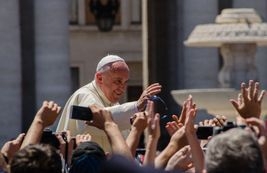
Extracts from Terry Fewtrell, Pearls & Irritations, John Menadue website, 30 June 2022
Australia’s Catholic bishops seem to think they own the franchise of the Holy Spirit and are prepared to manipulate the Plenary process to back their foolish claim. A Plenary Council is an archaic form of church assembly, locked into antiquated procedural rules, controlled by the hierarchy with very limited lay representation. The Australian church’s experiment in conscripting this antiquated form of meeting into a forum to adequately address the very real issues of a church in the 21st century, is approaching its moment of the Big Reveal. While we should at this point properly withhold judgement as to its likely success or otherwise, there have been numerous failings and inadequacies in the procedures to date. These have been well documented and come in the form of documentation intended to confuse rather than illuminate, the washing out of the key points distilled from early lay input and agendas that are clearly unfit for purpose and deceitful in their intent to run some issues out into the long grass. These inadequacies didn’t just happen. Clearly, they were contrived – seemingly in some cases to appease competing views among bishops. In fact, the notion of using a Plenary Council for the current review was probably a condition demanded by conservatives, in preference to the more contemporary and adaptable model of a Synod. It seems desperate efforts are now being made to badge outcomes as being endorsed by the Holy Spirit. Sadly, this is itself a concoction by those, principally the bishops, who are determined to control both process and outputs. In simple terms much of the process of the Plenary has been deceitful and the Holy Spirit does not abide in deceit......Australia’s bishops have been as uncomfortable with the Francis pontificate as they were complicit in the work of his two predecessors, in asserting their own authority over that of the Vatican Council.........(More). Photo:Pope Francis, Wikimedia Commons, Pearls and Irritations 20220730
A response to Thomas Weinandy’s latest j’accuse
Extract from Paul Baumann, Commomweal, 28 June 2022
..........Nothing I have read about McElroy leads me to believe that he possesses anything other than an orthodox Catholic faith. Bishops and cardinals disagree about a lot of things. It is my impression that Francis wants them, and all Catholics, to talk openly, honestly, and humbly about those disagreements. It is also my understanding that to “think with the Church” means to give magisterial teaching the benefit of the doubt, not subject it to a hermeneutic of suspicion. That said, why pretend Catholics are not honestly struggling when it comes to questions surrounding homosexuality, the ordination of women, or prudential judgments about abortion law? What I find unpersuasive in advocates on both sides of these disputes is thinking that the answers to these questions are all obvious and incontestable. I suspect that Francis’s popularity has much to do with the fact that he seems willing to listen before deciding. To Weinandy’s point: yes, Francis can be vague or ambiguous, but vagueness and ambiguity have their prudential uses. (What Jesus had to say was not always immediately clear either.) And yes, on certain hot-button issues Francis’s tone and demeanor are markedly different from those of his predecessors. As the cliché goes, he is usually more pastoral than didactic. He is also determined, unlike John Paul II and Benedict, to decentralize hierarchical decision-making in the Church. Much to the consternation of Catholics like Weinandy, Francis is willing to bob and weave to get that done....(Source). Photo: Pope Francis with Robert W McElroy 2021, CNS Paul Haring, Commonweal 20220628
Consultations with the Catholic laity over the past several months have had an important impact on the Church's bishops and how we exercise our ministry
Limited extract from Pascal Wintzer, France, Subscription journal La Croix International, 21 June 2022
The bishops' conferences around the world have been invited by Rome to express their views in order to contribute to the synodal process that will lead to the Roman Synod of October 2023. When those of us belonging to the French Bishops Conference arrived for our meeting in Lyon on the evening of June 13, we had no idea what kind of message we would eventually issue two days later. Fortunately, a "target text" had been drafted. But it was unanimously opposed, above all with regard to the quality of the "national compilation" of the diocesan syntheses. We understood that, for the bishops and their invitees, it was not about saying less well and watering down what had already been expressed. The word of the Church Everyone understood that the compilation would be seen as the voice of the Catholic Church in France. It was therefore imperative that the bishops' message accompanying this synthesis conveyed that they had heard the voice of the people. What we have been experiencing in the dioceses -- as well as during our plenary assemblies the last three years where lay and consecrated people, as well as priests, have been present -- has encouraged us to speak with others, after listening to each other. We have thus signed our text: "The Bishops of France listening to the assembly gathered in Lyon"......(Source)

The process has begun and is well underway, but it will still take time and patience to come to fruition
Limited extracts from Dominique Greiner*, France, Subscription Journal LA Croix International, 20 June 2020
The Catholic Bishops Conference of France (CEF) recently held an extraordinary plenary assembly in the city of Lyon that was dedicated to the Synod on Synodality. Catholics representing the different states of life in the Church (lay, ordained, and consecrated) were invited to the two-day meeting and able to attend all the working sessions of this assembly. This was a first and it illustrated how the great consultation on the future of the Church -- which Pope Francis launched in October 2021 and which will culminate in Rome in October 2023 -- is moving the lines. The opening of the plenary assembly was already in itself a response to the demand expressed by many of the faithful to be more involved in ecclesial discernment. Some people may feel that things are moving too slowly. It is true that expectations are high on various issues: the place of women in the institution, governance, attention to the poorest, the liturgy, and so forth. But as far as synodality is concerned, the Catholic Church is still in a learning phase. Its members are still learning to dialogue, to value each other, to recognize their respective charisms, and to discern together. Indeed, none of this happens spontaneously. Therefore, it is necessary to invent spaces for dialogue and doing things, as well as new ways of meeting, debating, and making decisions........It is on this criterion that the success of the synodal process can be judged. And for that, patience is still needed.....(Source). Image:the-synod-is-moving-forward-La Croix Int 20220620
* Dominique Greiner is a senior editor at La Croix, as well as a moral theologian and Assumptionist priest.
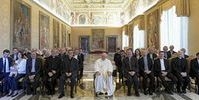
Extract from Cindy Wooden, CNS, Cath Nerws 20 June 2022
The Church needs theologians who know how to transmit the truths of faith in a way that will speak to people today, the Pope has written in a new text. “The community needs the work of those who attempt to interpret the faith, to translate and retranslate it, to make it understandable, to expound it in new words; it is a work that must be always done again, in every generation,” the Pope told staff from Milan’s archdiocesan seminary in a text given to them June 17. The seminary staff were in Rome as part of their celebration of the 150th anniversary of the seminary’s theology journal. In the text, the Pope wrote that the Church needs theologians who know how “to communicate the truths of faith today, taking into account linguistic, social, cultural changes and competently using the media, without ever watering down, weakening or "virtualising’ the content.” “The Church encourages and supports the effort to redefine the content of faith in every age, in the dynamism of tradition,” he said. “That is why theological language must always be alive, dynamic, cannot help but evolve and must work to make itself understood.” Unfortunately, he said, “sometimes the sermons or catechesis we hear are mostly composed of moralism and are not ‘theological’ enough, that is, able to speak to us about God and to answer the questions of meaning that accompany people’s lives, and which we often do not have the courage to formulate openly.” To be of real service to the Church and its members, he said, theologians must “always keep in mind the link between faith and life”.....(More) Photo: Pope Francis rector staff of Milan archdiocesan seminary theological journal CNS Vatican Media,CathNews 20220620
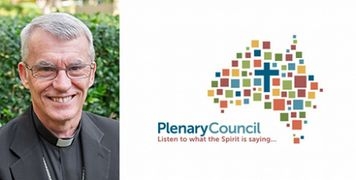
Extract from ACBC Media Blog, Cath News, 17 June 2022
Archbishop Timothy Costelloe SDB is inviting the Catholic community to attend the closing Mass of the Fifth Plenary Council of Australia – the culmination of a four-year journey of renewal for the Church. The second and final assembly of the Plenary Council will be held in Sydney from July 3-9. The final Mass, to be held at St Mary’s Cathedral at 10.30am on Saturday, July 9, is open to the public. “While its origins date back the best part of two decades, the journey of the Plenary Council since 2018 has been one for the whole Church in Australia,” said Archbishop Costelloe, the Council’s president. “It is therefore fitting that the whole Church can gather for our final step in the celebration phase of the Council for our closing Mass.” Archbishop Costelloe said about 270 members will undertake a particular task during the second assembly, but there is an awareness that they are acting with a national vision for the Church. “We, the members of the council, have been surrounded by the prayers of so many during these years and we humbly ask for that prayer to continue over these coming weeks,” he said. “When we gather around the altar on July 9, we will unite our voices with the hundreds in the cathedral but the much larger group of Catholics around the country who have been following this journey full of hope for our shared future.” The closing Mass will also be livestreamed through the Plenary Council’s website. The full schedule for the livestream of Masses and sessions during the second assembly will be released next week. Details: Plenary Council website...(more). Image: Archbishop Timothy Costelloe SBD ACBC CathNews 20220617
Extract from CathNews, 17 June 2022
Pope Francis has issued a decree requiring bishops to obtain written permission from the Vatican to start an “association of the faithful” as a first step toward forming a religious order. Source: Crux. “Before the diocesan bishop erects – by decree – a public association of the faithful with a view to becoming an institute of consecrated life or society of apostolic life of diocesan right, he must obtain a written licence from the Dicastery for Institutes of Consecrated Life and Societies of Apostolic Life,” said the decree published by the Vatican on Wednesday.....(more)
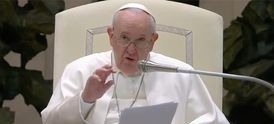
Extract from Michael Sean Winters, National Catholic Reporter, Catholic Outlook, 16 June 2022
A couple of weeks ago, I wrote about the danger of ideology to synodality, and gave some thoughts about how we Catholics can create an authentically Catholic worldview without that worldview degenerating into an ideology. As if on cue, the Holy Father gave a talk to an international conference of educators on June 1 that evidenced both my concern and pointed to some remedies appropriate to the field of education but which also have a wide application. The pope spoke of our time as one of crisis and recalled the figure of Aeneas as he fled the burning city of Troy, carrying his aged father Anchises over his shoulder and holding his son Ascanius by the hand. (The story was immortalized by Bernini in a magnificent sculpture in the Borghese Gallery in Rome.) “Aeneas saves himself, but not by himself,” the pope said. “He brings with him his father, who represents his past, and his son, who represents the future. And so he moves forward.” This sets the framework for the pope’s address. A mistaken understanding of tradition is the first source of ideology, ignoring the future by fixating on the past in an anachronistic way. Francis said, “… there is the fashion — in every age, but in this age in the Church’s life I consider it dangerous — that instead of drawing from the roots in order to move forward — meaning fine traditions – we ‘step back’, not going up or down, but backwards. This ‘back-stepping’ makes us a sect; it makes you ‘closed’ and cuts off your horizons. Those people call themselves guardians of traditions, but of dead traditions.”...(more). Photo: Pope Francis screenshot Feb 2022, Vatican News
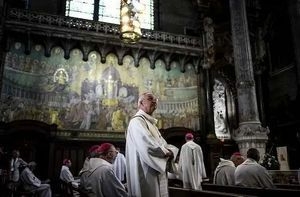
The bishops of France issue "binding" text on the future of the Church in their country, a text that was revised to include calls for reform that emerged during local synodal consultations
Limited Extract from Malo Tresca, France, Subscription Journal La Croix International, 20220616
The Catholic bishops of France have written "a cover letter" to the national synthesis of the diocesan phase of the Synod on synodality, producing a text that was significantly revised at the last minute to include calls for reform that emerged during months of consultations with the laity. The bishops approved the text during an extraordinary assembly of their national episcopal conference (CEF), which took place Tuesday and Wednesday at the Catholic University of Lyon. They invited more than a hundred people representing the laity, permanent deacons and religious orders to attend the assembly, which was to officially mark the conclusion of the diocesan phase of the synod. It's estimated that more than 150,000 French Catholics participated in the synodal consultations, which were launched last October. By the end of two intense days of work -- largely behind closed doors -- the bishops approved the cover letter that will be sent to Rome along with the recently prepared national synthesis. "This text commits them. It will be up to each one to follow the rhythm of his diocese," said Bishop Alexandre Joly of Troyes, who led the national team dedicated to the Synod. "Strong expectations" What are the highlights of the cover letter?.......(source) Photo: French bishops vote on Synod synthesis JEFF PACHOUD AFP, La Croix International 20220616

Tasmania takes ‘positive step’ to keep kids out of detention
Extract from CathNews, ABC News, 16 June 2022
Jesuit
Social Services says the Tasmanian Government’s commitment to ensuring
children under 14 are not held in youth detention is just one step
toward the ultimate goal of raising the age of criminal responsibility
to 14. Children and Youth Minister
Roger Jaensch announced last week that the Tasmanian Government planned
to raise the minimum age of youth detention from 10 to 14, describing it
as a key element in a best-practice approach. Jesuit Social
Services chief Julie Edwards said the “move to keep young children out
of youth detention is a positive step" but it did not go far enough to
“change the trajectory of children coming into contact with the justice
system”. “To do that, we must stop criminalising the behaviour of children under 14. We
can hold children to account while also working to understand what’s
driving their behaviour and support them get their lives back on track
without using a justice response," Ms Edwards said. “Exposing
children to the harms of detention means they are more, not less,
likely to commit further offences. Instead, we must support children in
the community wherever possible. We need trauma-informed approaches that
seek to understand the drivers of anti-social behaviour and we need to
connect children with family, community, culture and education to help
them flourish.” Ms Edwards said that
while that has been progress in some states and territories to raise the
age of criminal responsibility, there is yet to be legislative changes
to achieve this outcome. She said
Jesuit Social Services’ discussion paper, "Raising the Age of Criminal
Responsibility: There is a better way", outlines a range of practical
ways in which children can be held accountable for their actions in ways
that prevent further anti-social behaviour and better protect the
entire community.....(More). Photo:child_jail_Bigstock_CathNews 20220616
Extract from By Inés San Martín Crux, 15 June 2022
“The subordination of women to men is the fruit of sin,” the head of the Vatican’s Congregation for Bishops and the Pontifical Commission for Latin America said yesterday. “How much damage we have done, as men, by endorsing a status of superiority,” Canadian Cardinal Marc Ouellet said. “There is no complete image of what is human when only the masculine is considered predominant and the only thing relevant. For centuries, we have suffocated the feminine peculiarity.” The prelate was addressing the World Observatory for Women, promoted by the World Union of Catholic Women’s Organizations. The results of the Observatory’s first report looking into women in Latin America and the Caribbean, and how the COVID-19 pandemic has affected them, were presented at the gathering. The survey, which was also presented last Saturday to Pope Francis in a private audience, confirmed that the pandemic has worsened the condition of women in terms of gender-based violence.....(more)
Extract from Associated Press 14 June 2022
ROME — Pope Francis has complained that traditionalist Catholics, particularly in the United States, are “gagging” the church’s modernizing reforms and insisted that there was no turning back. Francis told a gathering of Jesuit editors in comments published Tuesday that he was convinced that some Catholics simply have never accepted the Second Vatican Council, the meetings of the 1960s that led to Mass being celebrated in the vernacular rather than Latin and revolutionized the church’s relations with people of other faiths, among other things. “The number of groups of ‘restorers’ – for example, in the United States there are many – is significant,” Francis told the editors, according to excerpts published by the Jesuit journal La Civilta Cattolica. “Restorationism has come to gag the council,” he said, adding that he knew some priests for whom the 16th century Council of Trent was more memorable than the 20th century Vatican II. Traditionalists have become some of Francis’s fiercest critics, accusing him of heresy for his opening to divorced and civilly remarried Catholics, outreach to gay Catholics and other reforms. Francis has taken an increasingly hard line against them, re-imposing restrictions on celebrating the old Latin Mass and taking specific action in dioceses and religious orders where traditionalists have resisted his reforms. Just last week, in a meeting with Sicilian clergy, Francis told the priests that it wasn’t always appropriate to use “grandma’s lace” in their vestments and to update their liturgical garb to be in touch with current times and follow in the spirit of Vatican II. “It is also true that it takes a century for a council to take root. We still have forty years to make it take root, then!” he told the editors. Traditionalists have become some of Francis’s fiercest critics, accusing him of heresy for his opening to divorced and civilly remarried Catholics, outreach to gay Catholics and other reforms. Francis has taken an increasingly hard line against them, re-imposing restrictions on celebrating the old Latin Mass and taking specific action in dioceses and religious orders where traditionalists have resisted his reforms. Just last week, in a meeting with Sicilian clergy, Francis told the priests that it wasn’t always appropriate to use “grandma’s lace” in their vestments and to update their liturgical garb to be in touch with current times and follow in the spirit of Vatican II. “It is also true that it takes a century for a council to take root. We still have forty years to make it take root, then!” he told the editors.....(More)

Moving beyond the "Church of certainties" and embracing the Church of "chaos and order"
Limited Extract from J.P. Grayland*, New Zealand, Subscription Journal La Croix International, 14 June 2022
.......From certainty to chaos and order For many, the synodal process brings old and new grievances to the fore. The grievances show we have more work to retain members, recruit them back, restore trust, and open new pathways. While some want a return to certainty, many more want to know how to live a life of faith—trusting in God—while living in a chaotic world and a chaotic Church. The mother of the gay child wants to be able to attend her child's wedding and go to Mass on Sunday and hear her decision affirmed. How does this happen without changing dogmatic positions? The person who loves the 1962 missal wants to be able to go to Mass and experience the transcendence of God in the liturgy through silence and chant. How does this happen without having two competing liturgical rites and opposing theologies of the Church? The new migrant Catholic wants to practice their cultural form of Catholicism in their new Church and see it taken seriously. How does this happen without them creating a safe, culturally defined religious community? The antidote is to remember that nothing in this world is perfect; that no person is perfect; that you are not perfect! Instead, we are called to live a realistic Catholicism that is certain of God in the chaos of its human community and rejoices in a chaotic world in which God is present. We, the Church, need to do this through a mature engagement with the world from a community of mature people who believe, live and pray in the "real world"; an authentic adult Church; the authentic sacramental conversation partner immersed in a chaotic world that is also God's playground. Where there is order in chaos, there is chaos in order! Embrace it! .......(more). Image: Chaos, living-with-the-chaos-the-current-state-of-roman-catholicism La Croix International, 20220614 *J.P. Grayland is a presbyter of Palmerston North Catholic Diocese in New Zealand. His latest book is Liturgical Lockdown: Covid and the Absence of the Laity (Te Hepara Pai, 2021).

Bishops in Spain compile document on the views of some 220,000 Catholics who participated in synodal consultations throughout the country
Limited Extract from Xavier Le Normand, Spain, Subscription Journal La Croix International, 14 June 2022
Catholics in Spain have identified "three urgent needs" for the Church, including a greater role for lay people and an end to clericalism. That's what emerges in a 20-page document the Spanish Episcopal Conference (CEE) released on June 11 summarizing nationwide, diocese-by-diocese consultations for the Synod on Synodality. Catholics said the third urgent need is to better develop synodality. In total, almost 220,000 people took part in the synodal process, organized in some 14,000 groups. The document says the synodal process was a success particularly because of the laity, who were "initially more motivated than the priests". Clericalism, it notes, is considered to be an "inertia of the past", which has sometimes drifted into "authoritarianism". Instead of continuing with this attitude, Spanish Catholics asked that the "complementarity" of vocations be recognized in order to allow "co-responsibility" between clerics and laity. The goal is not to change the "identity" or the "mission" of the Church, but to "renew its way of involving people". This is a necessity, according to the document, which uses very clear words at times. The participants recognized a "clear divide" between the Church and society, with the former seen as "reactionary" and "distant from today's world". "We believe that we must be able to promote a Church that is more concerned with opening up processes led by the Spirit than with occupying spaces," the synthesis states.....(Source). Photo: Cardinal Joan Josep Omella, President Spanish Episcopal Conference (CEE) 2022 FERNANDO LLAR EFE MAXPPP, La Croix Int, 20220614
Extract from Jackson Graham, The Age, 9 June 2022
The Catholic Archdiocese of Melbourne has been ordered to pay $1.9 million in damages to a former altar boy who was sexually abused by Victorian priest Desmond Gannon. The victim brought the case against Melbourne Archbishop Peter Comensoli, claiming the city’s Catholic Archdiocese was negligent and vicariously liable for the abuse, which occurred between 1968 and 1970. Gannon assaulted the victim, who cannot be named for legal reasons, on three occasions when he was a student at a Catholic primary school in regional Victoria.....(More)
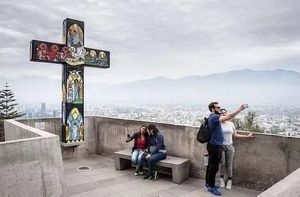
The Catholic Church in Chile has lost all credibility
Four years after all the bishops of Chile submitted their resignation to the pope, the Catholic Church in the country appears to be mired in a crisis it cannot overcome
Limited extract from By Marguerite de Lasa, Chile, Subscription journal La Croix International, 9 June 2022
When running an errand in the center of Santiago, the capital of Chile, Gina always stops at the Catholic cathedral.She 67-year-old stays there for about 20 minutes, thanking the Lord for her health and entrusting her son who lives far away. She also prays every night at home.But she has not been to Mass for the past ten years."After all that has happened, all the sexual abuse, we no longer trust. How can we go to Mass and confess before a priest?" she exclaims."In Chile, all the indicators of trust in the Church are down, except for popular piety," says Eduardo Valenzuela, a sociologist of religion at the Pontifical University of Chile.....(More). Photo: Chile ADRIEN VAUTIER LE PICTORIUM MAXPPP, La Croix Int, 20220609
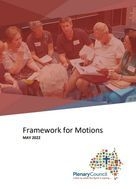
Extract from Bishop Robert W. McElroy, America The Jesuit Review, Catholic Outlook 20220609
Can synodality become a deeper element of Catholic life in the United States? Our current process may prove this to be so. One of the central sentiments expressed in our diocesan synodal consultations has been that the people of God have at times not been meaningfully heard and responded to in the institutional life of the church, and they fear that the synodal process might be another in a series of moments when hopes are raised only to be frustrated. But the current synod process offers a glimpse of a church yet to come. Hundreds of thousands of Catholics have engaged with the church on their joys, their sorrows and their hopes for what the church can be today and tomorrow. Across the United States, dioceses, parishes and religious communities have undertaken intensive processes of consultation and dialogue in order to help prepare for the global synod on synodality that will take place in Rome in October 2023. Soon, each local church will forward to the U.S. Conference of Catholic Bishops a formal report on their consultation, which will contribute to the work of the global church. Fortunately, the theology and practice of synodality that have already emerged from the Second Vatican Council and the writings and actions of Pope Francis provide an architecture for us to continue substantive synodal formation during the next two years. This architecture consists of three elements: the see-judge-act methodology that lies at the heart of the synodal process, the characteristics of a synodal church that Pope Francis has articulated, and the overwhelming imperative for constant and effective evangelization that has been a hallmark of the pontificates of St. John Paul II, Pope Benedict and Pope Francis.....(More)
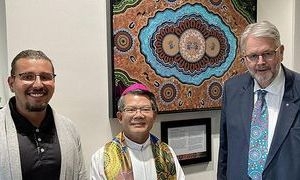
Diocese of Parramatta celebrates commitment to Reconciliation
Extract from Catholic Education Diocese of Parramatta, 8 June 2022
Diocese
of Parramatta representatives gathered last week for a beautiful
Reconciliation Week event at the Bethany Centre in Parramatta.
Surrounded by Australian wildflower arrangements, Bishop Vincent Long
OFM Conv, Bishop of Parramatta, blessed four meeting rooms named in the
local Dharug language, as well as a stunning artwork by award-winning
Aboriginal educator and artist Josh Sly. The
artwork: “Reconciliation in action: Hand in hand”, commissioned by
Catholic Education Diocese of Parramatta (CEDP) for its first
Reconciliation Action Plan (RAP), will be proudly displayed in the foyer
of the Church’s headquarters in Western Sydney as a reminder of the
Church’s commitment to justice for Aboriginal and Torres Strait Islander
people. “This artwork highlights our commitment to the ongoing journey of Reconciliation,” Bishop Vincent said. “The
names of these meeting rooms recall the spirit and culture of our
Aboriginal and Torres Strait Islander sisters and brothers. They will be
a sign that the Church is a reconciling community.” Josh
Sly, a proud Biripi, Worimi and Wiradjuri Guri (man), works with
students and school communities through CEDP’s Jarara Indigenous
Education Unit based at Mount Druitt. His outstanding work and leadership was recognised at the 2019 Service to Community Awards. Josh said his artwork captures the essence of CEDP’s commitment to reconciliation. “Reconciliation is a continued relationship, commitment and journey,” Josh said. “For
this artwork, the three meeting places are symbolic of the Aboriginal
and Torres Strait Islander community on one side, CEDP on the other, and
in the middle the coming together of all people for true
reconciliation.”....(More) Photo: Reconciliation, Blessing ceremony, Diocesan Chancery Office, Parramatta, Catholic Outlook, 20220609

How a diocese in New Zealand engaged in the consultative synodal process
Limited Extract from J.P. Grayland, New Zealand, subscription Journal La Croix International, 6 June 2022.
The synodal consultation gives insight into the issues shaping the lives of local Catholics. Although themes such as child abuse, clericalism, and priestly formation are emerging internationally, these issues do not drive local synodal processes with the same intensity or to the same degree. A synodal process is a local event as much as an international one. It is shaped by local issues, politics, theological imperatives and ecclesial needs, and the consultation feedback reflects this. The overall response to the synod process and the emerging themes from our consultation in the Diocese of Palmerston North in New Zealand illustrate our context and frame our experience of synodality. Child abuse and the abuse of authority by clergy is a critical international theme. In some local Churches, it is driving and shaping the synodal process and synodal feedback. In other countries, other issues are driving and shaping the process. Evidence shows that child abuse, driven by secular government and Church investigations, has become the critical driver of synodal engagement in Germany, Ireland, and Australia. This is not to say that child abuse is not a problem for most Local Churches, but instead that it is not the primary motivational issue driving engagement in the synodal process. In Australia, for example, the responses of the Royal Commission and the Australian Government to the commission's report on institutional sex abuse have been formative of the Australian Church's approach to the synodal process, its emerging themes, and Catholics' participation. In Germany, the issue of child abuse has similarly driven responses to the Synodal Way. Here, voices for change among lay Catholics have become more robust due to the intense focus on the clerical abuse of children and power illustrated in the recent reports from the archdioceses of Cologne and Munich. As elsewhere in the process, the New Zealand synodal process shows a desire for "things to change".....(More) Photo:Kiwi catholic-synodality La Croix Int 20220606
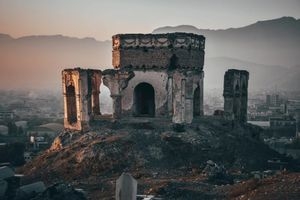
In his feedback to the Plenary Council on its document Towards the Second Assembly, Archbishop Julian Porteous states the conservative position on the reforms proposed by that document. But underlying the conservative position is an attitude of fear. The primary fear is loss of certainty about the fundamental truths of life and their meaning. Any compromise of the Church’s commitment to those truths threatens that certainty, and must be resisted. The notion of the “signs of the times” cannot be allowed to be interpreted as anything more than an easy pretext for falling away from adherence to those truths by Church members and the world at large. Beliefs, ideologies and ways of life that are at variance with those truths can be nothing more than evidence of hostility to them: the powers of this world resisting the saving message proclaimed by the Church. The challenge posed by such resistance is not to revise our understanding of them in an evolving historical, social and cultural context, but simply to find more effective ways of convincing people of their truth. Secondly, conservatives equate this proclamation of the saving truths, supposedly revealed by Christ, with what the first Christian communities did, and what consequently all Christian communities have done since then. In their view tradition consists of faithful adherence to a set of truths. The experience of unity with a faith community is merely a consequence of this fundamental commitment to the truths supposedly revealed by Christ. A reductionist view of Tradition? This is where their legitimate concerns for the Church encounter a stark and fundamental difficulty. This view of tradition is far too reductionist to sustain the notion of a faith community................(More). Image; Catholic Weekly, 20220604

John Costa, 4 June 2022
The 'Plenary Council' seems to have been around a long while. The decision to hold a 5th Australian Plenary Council '2020-2022' was first announced in 2018. The eventual 1st Assembly, delayed a year by COVID, was actually conducted online last year, a year later than planned, from 3-10 October 2021. Through a common process of prayerful listening and discernment all contributors had previously been asked "What is God calling us to make our Church today". All were encouraged to speak openly, honestly and respectfully, with "everything on the table". With very much faithful, respectful, energetic and hopeful effort this was done, and 17,500 submissions received, involving around 220,000 persons. This formed the input to the 1st Assembly last year.
So where's is at now? Last Wednesday the Australian Catholic Bishop's Conference released the "Motions to be discussed and discerned at the second session of the Plenary Council" in Sydney from 4-9 July 2022. There are 30 Motions for deliberation together with their justification (HERE). While there's no formal opportunity to respond to this overall document anyone can suggest amendments to individual motions by writing to Plenary Council Members. However apart from the short time available (by 15 June) any suggested amendments are only possible to clarify rather than change intent, or perhaps to marginally vary focus or emphasis. There has been much open discussion and debate on the Plenary council lately, and the Secretary of the Plenary Council Fr David Rasom counselled a recent YTU/Garratt/ACCCR webinar to "tailor their expectations in anticipation of inevitable disappointment and disillusionment”.

Extract from Michael Sean Winters, National Catholic Reporter, 3 June 2022
......The pope spoke of our time as one of crisis and recalled the figure of Aeneas as he fled the burning city of Troy, carrying his aged father Anchises over his shoulder and holding his son Ascanius by the hand. (The story was immortalized by Bernini in a magnificent sculpture in the Borghese Gallery in Rome.) "Aeneas saves himself, but not by himself," the pope said. "He brings with him his father, who represents his past, and his son, who represents the future. And so he moves forward." This sets the framework for the pope's address. A mistaken understanding of tradition is the first source of ideology, ignoring the future by fixating on the past in an anachronistic way. Francis said, "… there is the fashion — in every age, but in this age in the Church's life I consider it dangerous — that instead of drawing from the roots in order to move forward — meaning fine traditions – we 'step back', not going up or down, but backwards. This 'back-stepping' makes us a sect; it makes you 'closed' and cuts off your horizons. Those people call themselves guardians of traditions, but of dead traditions." The observation "This 'back-stepping' makes us a sect" is very perceptive. There is a kind of traditionalist Catholic who is closed in on himself, whose identity is conflated with a (usually mistaken) appropriation of the past, and the result are communities that are afraid of the world. Their complaints against the world in which they actually live become a laundry list of words which, if pushed, they could not explain in any adequate or meaningful way: secularism; relativism; modernism. The actual warp and woof of history, and of these abstract ideas, escapes them. They need them to be caricatures and so the actual engagement with history is not the objective and is itself threatening also......(more), Photo: Pope Francis St. Peter's Square June 1 CNS Paul Haring, NCR 20220603

Extract from CathNews, 3 June 2022
This Reconciliation Week, marked on May 27-June 3, Caritas Australia is urging on the Albanese Government to continue to work towards closing the gap for Indigenous Australians. “We work with First Australian partners all over the country, from Western Sydney to Beswick in remote Northern Territory, and our key priority across all these partnerships is to really listen, understand and collaborate,” says Christine Rhazi, Caritas Australia’s First Australians associate director, and a proud Yamatji Widi woman from Geraldton, Western Australia. “Our country has a history of making decisions on behalf of rather than with First Australians. This means we’ve ended up with a lot of policies that don’t work or cause further trauma to culture and communities.” Caritas Australia works in close partnership with Aboriginal and Torres Strait Islander peoples, and Indigenous-led organisations to support programs that focus on intergenerational healing, strengthening cultural identity and spirituality, livelihood opportunities, and advocacy. One organisation is the Kinchela Boys Home Aboriginal Corporation which was formed by the survivors of Kinchela Boys Home in Kempsey, New South Wales, who were forcibly removed from their families during the Stolen Generations period. It seeks to address the trauma of being forcibly removed from their families, as well as the multigenerational trauma that adversely impacts the lives of their families and descendants. "The truth-telling about the invasion of this land needs to be told. It needs to be told for everybody. Not just the children who were forcibly removed, but for the bigger pain that's not talked about,” said Uncle Michael “Widdy” Welsh, KBHAC’s chairperson. Caritas Australia said Aboriginal and Torres Strait Islanders are worse off compared to other Australians across almost every measurement of wellbeing, including financial, social, physical and mental health. Indigenous Australians are incarcerated at significantly higher rates, with dire consequences for some children incarcerated as young as ten years old....(More). Photo: Christine Rhazi Uncle Michael Welsh outside KBHAC office Caritas Australia, Caritas Australia, CathNews 20220603
Extract from CathNews NZ, Crux Now, 2 June 2022
Catholic Church communications should be more proactive and help promote a culture of transparency, openness and co-responsibility. It can help with a greater commitment to communication that follows the Gospel way, marked by listening, dialogue, compassion, tenderness and accompaniment. All people yearn for truth and justice, speakers at a panel discussion in Rome said last week. The discussion followed the presentation of a new book “Transparency and Secrecy in the Catholic Church” written by two of the panelists, Fr Jordi Pujol Solerand and Fr Rolando Montes de Oca. The third panelist was Archbishop Charles Scicluna, from the Vatican Congregation for the Doctrine of the Faith. Information and secrecy are both forms of power that can be abused, the authors say. There is a growing desire for greater transparency in Church communications to end “absurd and useless secrets,” while protecting needed privacy, confidentiality and the sacred sacrament of confession. Safeguarding reforms, laws and procedures are part of a larger call for conversion for the entire church. Pope Francis’s most recent reforms concerning safeguarding and church leaders’ greater accountability show the connection between canon law and communication.....(More).
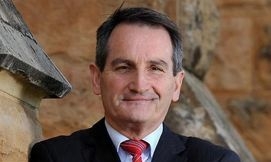
Extract from Adam Wesselinoff, Catholic Weekly, 2 June 2022
Leading Catholic reformers have signed a statement calling for a third assembly of the Plenary Council to address what they see as glaring issues with the process of convening the second assembly to be held in July this year. The statement, which was published on 29 May by the Synodal Process Project Group (SPPG), a subgroup of the Australasian Catholic Coalition for Church Reform (ACCCR), was signed by leading Church reformers including Francis Sullivan, Paul Collins, John Warhurst, Patricia Gemmel and Eleanor Flynn, and supported by ACCCR member groups. The SPPG is calling for a third assembly in early 2023 to address an extensive list of concerns and complete the process in time for the October 2023 Bishops’ Synod on Synodality in Rome. The Catholic Weekly understands that apart from an agreement to hold a further assembly from the steering committee, Plenary Council members could force a third assembly to be held by voting “no” to the final motion to “close” the Plenary in July. When asked if reform groups would encourage members to vote “no” to close the council, Kevin Liston, convenor of the SPPG, said his group was “not in a position to form a definitive view on this matter”. Reformers’ concerns over Plenary process The statement, which reprises earlier themes from members of Church reform groups, claims the second assembly’s agenda has been excessively controlled by the Australian Catholic Bishops’ Conference, which has “diluted the true input of the faithful”. They are concerned that the drafting process for the second assembly proposals was conducted behind closed doors, with key documents not released for public appraisal. The final proposals are “far removed from the original submissions” and were not approved by Plenary Council members “out of session”, the statement said. The SPPG also disagrees with the view put by “some bishops” that the Plenary Council “should be limited to matters within the competence of the Australian bishops” and should not raise broader questions about Church doctrine and faith. The statement proposes that Plenary Council members “have an effective role in interpreting the agenda … to ensure that the sense of the faith of the Australian faithful is adequately discerned in consultative sessions and reflected in the resolutions of the second assembly”......(More) Photo: Francis Sullivan, Catholic Weeklu, 20220602
Extract from CathNews NZ, NZCBC, 2 June 2022
Continuing research has produced further details of where and by whom much of the reported abuse in the Catholic Church in New Zealand was committed. The research is being undertaken by Te Rōpū Tautoko, the group that coordinates the Church’s engagement with New Zealand's Royal Commission on Abuse in Care. Te Rōpū Tautoko yesterday published information expanding on research published in February as part of its ongoing Information Gathering Project. The February research found that a total of 1680 reports of abuse were made nationally between 1950 and 2021 by 1122 individuals against Catholic clergy, brothers, nuns, sisters, and lay people, with 592 alleged abusers named. The 1960s and 1970s were the decades when the most reported abuse was alleged to have happened, with three quarters before 1990. The additional information published yesterday expands on the February material and looks at reports of abuse about members of specific dioceses and congregations. It shows that the five Catholic entities with the highest totals were the St John of God Brothers (269 complaints), Marist Brothers (157), Sisters of Nazareth (155), Archdiocese of Wellington (145), and Diocese of Auckland (124). It also shows that the five Catholic entities with the highest proportion of members named in allegations were the St John of God Brothers (reports made against 22 brothers, or 52 per cent of the 42 who served in NZ from 1950 to date); Sisters of Nazareth (29 sisters, or 34 per cent of the 86 who served); Christchurch Diocese (34 priests or 19 per cent of the 179 who served); Dunedin Diocese (26 priests, or 18 per cent of the 131 who served); and Good Shepherd Sisters (20 sisters, or 18 per cent of the 114 who served). Te Rōpū Tautoko chairperson Catherine Fyfe said "By publishing this information now, the hope is we can all look behind the statistics and ask how the abuse occurred and why it occurred.”.........(More).
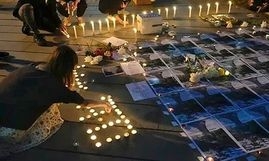
Tiananmen Square memorial Masses cancelled in Hong Kong
Extract from CatnNew NZ, 2 June 2022
Church
services in Hong Kong to commemorate the 1989 Tiananmen Square
crackdown have been cancelled amid fears of breaching security
laws. Beijing imposed a sweeping national security law in 2020 to snuff out pro-democracy demonstrations. The
security law has effectively erased reminders of China’s bloody
suppression of the protests in the Chinese capital 33 years ago. Candlelit vigils have been banned, a Tiananmen museum has been forced to close and statues have been pulled down. The
Hong Kong Catholic diocese announced that it would no longer hold a
memorial Mass to pray for the victims of the massacre. The
annual Catholic masses were one of the last ways for citizens of Hong
Kong to come together publicly to remember the deadly clampdown in
Beijing on 4 June 1989, when the Chinese government set tanks and troops
on peaceful demonstrators. But this year, they too have been cancelled over fears of falling foul of Hong Kong authorities. “We
find it very difficult under the current social atmosphere,” said Rev
Martin Ip, chaplain of the Hong Kong Federation of Catholic Students,
one of the organisers. “Our bottom line is that we don’t want to breach any law in Hong Kong,” he said. The
church’s move comes after the candlelight vigil that once featured
thousands marking the anniversary at an outdoor park was banned in 2020
and 2021. At the time, authorities suggested that the coronavirus
pandemic was the cause of the cancellation. The Catholic Church’s memorial Masses were the last form of organised commemoration in the city. The “Pillar
of Shame” in the University of Hong Kong (HKU), an eight-metre-high
sculpture by Danish artist Jens Galschiot, was dismantled, tucked into a
cargo container and left on an HKU-owned plot of rural land. At Lingnan University, a wall relief by artist Chen Weiming was banished to an underground storage room. His
“Goddess of Democracy” statue at the Chinese University of Hong Kong
was sent to a secretive “safe place”. “They are trying to wipe out a
shameful episode in history when the state committed a crime on its
people,” Chen said. Instead, the space for remembering the
crackdown now lies outside Hong Kong, with exiled dissidents setting up
their own museums in the US and activists planning to resurrect the
Pillar of Shame in Taiwan.....(More). Photo: Tiananmen Masses cancelled Hong Kong CathNewsNZ 20220602
Extract from CathNews NZ, 2 June 2022
Meet any group of Catholics today and within minutes someone will mention that their diocese or local area is undergoing a “re-organization”. Parishes are being combined, the ordained ministers being spread more thinly around communities, and the access to gathering for Eucharistic activity is being curtailed. The process is sometimes given an elegant name derived from analogies with businesses that are “down-sizing”, but this does not hide the reality that this is driven by two key factors: fewer and ageing presbyters. Moreover, there is little prospect that this situation—even with the addition of presbyters from Africa and India (a practice that is itself a form of colonial exploitation)—will change any time soon. In answer to this, we need to reflect on the basics of ministry and not merely imagine that what has been the paradigm of ministry in the Catholic Church since the early seventeenth century is either set in stone or in any way ideal. Rather than being an ideal, it was instead a pragmatic response to the Reformation which, in terms of the Council of Trent’s vision of “the priesthood” (sacerdotium), was perceived as an officer-led rebellion that was to be prevented from recurring. Liturgical ministry Every religion, and every Christian denomination, has spiritual leaders, and these take the primary roles at its rituals. Moreover, ritual requires expertise, and the amount of expertise required is usually a direct function of the length of the group’s remembered tradition.....(more)

Limited Extract from Gerard O'Connell, Subscription journal America, The Jesuit Review, 20220529
Pope Francis announced on May 29 that he will create 21 new cardinals, 16 of them electors with a right to vote in the next conclave, including bishops Robert McElroy of San Diego, Calif., and Arthur Roche of England. The choice of Bishop McElroy is the biggest surprise of this consistory for the church in the United States. A graduate of Harvard, Stanford and the Pontifical Gregorian University, Bishop McElroy has demonstrated that he is one of the strongest supporters of the pope’s vision of church among the American bishops since Francis appointed him to be bishop of San Diego in March 2015. By choosing him to be a cardinal, instead of others, Pope Francis is sending a powerful message to the American bishops and church. “Bishop McElroy is an American analogate of the late Cardinal Carlo Maria Martini,” an American bishop who knew both men well told America when he was appointed to San Diego. The bishop, who asked for anonymity then but is now dead, described Bishop McElroy as “a prayerful, contemplative man,” endowed “with an extraordinarily gifted intelligence and imagination,” and “not self-promoting.” He portrayed him as a true pastor, concerned about his people and very attentive to them, especially when they are suffering or in difficulty. Moreover he said, “Bishop Bob” has “the gift of prudence” but also “the courage to break new ground.” "I am stunned and deeply surprised by the news that Pope Francis has appointed me to the College of Cardinals," Bishop McElroy said in a statement from the Diocese of San Diego. "My prayer is that in this ministry I might be of additional service to the God who has graced me on so many levels in my life. And I pray also that I can assist the Holy Father in his pastoral renewal of the Church. ....(Source). Photo:Bishop Robert W. McElroy CNS Paul Haring, America Jes Rev 20220529 [Ed: See Avoiding a deadlocked Conclave,19/05/22]
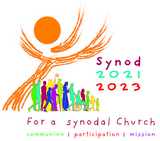
1. Catholic Archdiocese of Melbourne HERE
2. The Canberra and Goulburn Archdiocese (Incorporating Military Ordinariate) HERE

Extract CathNews, The Catholic Leader, 25 May 2022
Brisbane Archbishop Mark Coleridge has used the feast day of Our Lady, Help of Christians to call for prayers for the Church in Australia, ahead of a historic second assembly of the Plenary Council in July. Source: The Catholic Leader. Archbishop Coleridge said the Church found itself in “troubled times” and needed “new life”. “It’s not a bad moment to pray – for a new government coming to power, and the future fairly uncertain both nationally and internationally,” he said, delivering a feast day homily to Church employees from agencies across Brisbane. Mary, under the title of Our Lady Help of Christians, was chosen as the patroness of Australia at the First Provincial Synod of Sydney in 1844. Archbishop Coleridge said Mary “is not just the physical mother of Jesus, she is the woman who is the word of God”. “We turn to her (Mary) as Christians and say help us, because left to our own devices we look very, very unpromising,” he said. “We find ourselves in the Church in this country troubled … because of self-inflicted pressure, I think particularly of the sexual abuse crisis, which is the most monumental self-inflicted wound that I have ever known.” After four years as president of the Australian Catholic Bishops Conference, Archbishop Coleridge is preparing to hand over leadership to Perth Archbishop Timothy Costelloe on July 13, following the second assembly of the Plenary Council.....(More). Photo: Archbishop Mark Coleridge and Dr Sally Towns, The Catholic Leader, CathNews 20220525
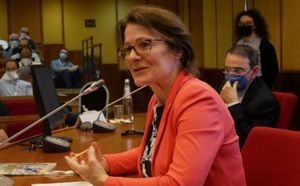
Extract from by Christopher White, National Catholic Reporter, 24 May 2022
Rome — Although Amoris Laetitia, Pope Francis' landmark 2016 document on marriage and family life, has been widely praised for its call for greater integration of divorced, remarried and LGBTQ Catholics into church life, theologians have long said the text's implementation on the ground has been mixed. A major May 11-15 conference at Rome's Pontifical Gregorian University, however, brought together nearly 200 bishops, priests, religious women and theologians from 25 countries in Africa, Asia, North America, South America and Europe with an aim of firmly cementing the pope's magisterial teaching on these matters into pastoral practice around the world. "Family relationships are fragile," Sigrid Müller, a member of the theology faculty at the University of Vienna, told conference participants. "Accompanying fragile family relationships is a task of the church." To do that, she noted, "the church must change in order to accompany families," and "an adequate accompaniment of families by the church requires a conversion.".....(More). Photo:Sigrid Muller,U Vienna, Amoris Laetitia, Pontifical Gregorian University Arnaldo Casali, NCR 20220524
Extract from Jack Jenkins, Religion News Service, National Catholic Reporter, 23 May 2022
Washington — Two days after San Francisco Archbishop Salvatore Cordileone announced he would bar her from receiving the Eucharist in her home city due to her stance on abortion rights, House Speaker Nancy Pelosi reportedly received the sacrament at a Catholic church in the nation's capital. According to Politico's Playbook newsletter, Pelosi received Communion on May 22 during Mass at Holy Trinity Catholic Church in Georgetown, a parish where President Joe Biden has also attended services. Footage from the church's livestream of the service shows a person in an orange jacket resembling Pelosi coming forward as the Eucharist is being distributed and walking away behind other worshippers. It's not unusual for Pelosi, a Catholic who often discusses her faith, to attend Mass, but her decision to receive the Eucharist at Holy Trinity amounted to a rebuke of Cordileone, who is well known for his conservative and sometimes controversial views.....(More). Photo: Nancy Pelosi, Washington CNS photo Tom Brenner, Reuters, NCR, 20220523
Extracts from The Tablet, 20 May 2022
The cardinal tasked by Pope Francis with overseeing the Church’s global synod says he is not worried about the German reform process stressing that the synod cannot ignore difficult questions. Cardinal Mario Grech said that the criticisms of Germany are part and parcel of what it means to be a synodal Church which offers a forum to express disagreements. “Synodality offers that space where we can share our fears and our joys, our certainties and our doubts, our dreams. Obviously, there are dreams that can be realised, others that cannot. There are dreams that can be realised tomorrow, others need more time. But, personally, nothing really worries me in so far that we respect the fundamental principles of the Catholic Church,” the Maltese prelate told the “The Church’s Radical Reform” podcast.
“Bishops have their ministry in the local churches, bishops are not freelancers but they form part of the college of bishops and then the college of bishops is united with Peter.”........Cardinal Grech pointed out that “nothing should be left under the carpet” during the synod discussion and that people must be free to present issues for the Vatican to consider. He added that during the synod “all the material that reaches our office will be submitted to the Holy Father.” He added that “nobody is excluded” provided they “want to be disciples of Jesus Christ.” The cardinal, who is secretary-general of the Synod of Bishops office in Rome, said the priority is to become a more “synodal Church” which is able to listen and discern together. “Unless we become a synodal church, then it will be more difficult to address to go deeper theologically about certain issues that people are raising,” he stressed. To that end, he suggested that the global synod “For a Synodal Church" is likely to go beyond a summit of bishops in the Vatican in October 2023. “The synod has no end,” he said. “There will be no end, because once the process has started it will proceed, even beyond October 23.”....(more)

The backstory to Pope Francis' recent move to allow "lay brothers" to become heads of religious orders that include ordained priests and why this is a pretty big deal
Limited extract from Robert Mickens, Vatican City, Subscription Journal La Croix International, 20 May 2022
Pope Francis just took another step forward to de-clericalize the Roman Catholic Church. And what most people probably don't realize is that he did so by taking a step backward and rewinding the clock some four centuries! The 85-year-old pope has just decreed that so-called "lay brothers" can be heads of their religious orders, even if these communities include priests. In other words, a non-ordained member of a religious community can be the superior (or "boss") of those who are ordained presbyters. The change, and it's a pretty big one, was announced May 18 by the Vatican's Congregation for Institutes of Consecrated Life and Societies of Apostolic Life (referred to hereafter as CICLSAL or the "congregation for religious"). The congregation said the pope issued a "rescript" (an official edict) to formalize this novelty. Well, it's only a novelty of sorts. While the Code of Canon Law (cf. Can. 129) makes it clear that the non-ordained cannot have "power of governance" or "jurisdiction" over those who "have received sacred orders", this has not always been the case in the long history of the Roman Church. And in the so-called "mixed institutes" -- male religious communities that include both non-ordained and ordained members (colloquially, brothers and priests) --, only the priests have been permitted to be the major superiors......(more). Photo:Pope Francis receives Fransiscans of 1st Order and 3rd Order Regular at Vatican, L'Osservatore Romano, EPA MAXPPP, LaCroix Int. 20220522
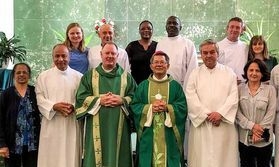
Extract from Deacon Tony Hoban, 20 May 2022, Catholic Outlook 20220520
On Tuesday, May 17, Bishop Vincent Long OFM Conv, Bishop of Parramatta, formally called the men to Candidacy to Holy Orders during Mass at St Nicholas of Myra Parish, Penrith. The men are Charles Abela, David Dowling, Jerome D’Rozario, Batsirai Maringehosi and Alan Skofic. During his homily, Bishop Vincent encouraged the men, their families and friends, and the wider community to encounter the living Christ “beyond fixed walls and boundaries”. “We must learn to witness to him in our acts of solidarity, hospitality and service to the least of His brothers and sisters,” Bishop Vincent said. “Candidacy is a commitment to self-sacrifice, humble service and servant leadership. It is to follow the example of Christ who came not to be served, but to serve.” Bishop Vincent also thanked and prayed for the men’s wives, whom he described as being “integral” to the men’s formation and eventual diaconal ministry. “I am convinced that if Christian ministry has a better future, it has to find expression in better mutual support, collaboration and partnership. “We celibate clergy have a lot to learn from you as you seek to embody the ideal of Christian service not only in how you minister, but also in how you nurture your relationships. “May we learn the art of living in God’s presence: our identity grounded, our commitment deepened and our mission nurtured for greater service of the Kingdom.”........(More). Photo: Parramatta Deacon Candidacy and wives-2022 Catholic Outlook, Parramatta Diocese 20220520

Extract from CathNews, SBS News, 20 May 2022
More than 500 refugees and asylum-seekers will be left with nowhere to go after Labor and the Coalition refused to commit to negotiating more places in overseas resettlement programs. The Government recently finalised a deal to send 450 refugees to New Zealand over the next three years and approximately 250 places remain on the United States resettlement pathway. But there are about 1380 refugees and asylum-seekers who came to Australia after the Rudd Labor government introduced rules in 2013 preventing asylum-seekers who arrive by boat from ever settling in the country. Once those overseas places are filled, the hundreds left will remain stranded. The vast majority of the 1380 people have already been declared refugees, with most living in Australia and about 200 living in Nauru and Papua New Guinea. Those in Australia are deemed "transitory persons" on Final Departure Bridging Visas, which have restrictions on work and education opportunities. The Coalition maintains this group will never settle in Australia but hasn’t announced another overseas pathway. There are close to 20,000 refugees in Australia on temporary protection visas (TPVs) who came by boat before the policy to bar them settling in Australia was established. Labor has committed to bringing them onto permanent protection visas, which will give many the opportunity to work and study. Opposition leader Anthony Albanese said while Labor supports third-country resettlement and offshore processing, it doesn’t support TPVs. Last month, Prime Minister Scott Morrison reaffirmed those refugees would remain on TPVs under his government. Refugee Council of Australia CEO, Paul Power, said it will be up to the next government to fix the issue that’s been plaguing the country for nine years......(more). Photo: Refugees welcome here sign, Bigstock, CathNews, 20220520
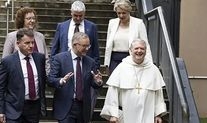
Extract from CathNewsNZ, 20 May 2022
Australia’s Catholic leaders can have a powerful voice in politics, if they choose to exercise it through their pulpits and schools. They use it sparingly and, this year, they have been conspicuously quiet. So, the appearance of Sydney Archbishop Anthony Fisher alongside Opposition Leader Anthony Albanese at St Mary’s Cathedral School last week raised eyebrows within the flock; was this a subtle endorsement of Labor to form government? “Mark that as the day the church sent a signal in the election,” said a senior executive in a Catholic Church organisation, on the condition of anonymity.
Fisher met Albanese for a private tête-à-tête before escorting him and education spokeswoman Tanya Plibersek to the Labor leader’s alma mater, St Mary’s Cathedral School. A smiling Fisher left before the politicians’ press conference. Albanese was coy. “I know His Grace very well,” he told reporters afterwards. “We meet regularly.” It suits the Labor leader to emphasise his Catholicism; it’s a message to wavering voters of faith that he respects and understands their beliefs, especially given the enthusiastic Pentecostalism of his rival, Prime Minister Scott Morrison. Fisher, who a few years ago said he was shocked by the resurgence of anti-Catholic sentiment in the community, would be aware that an Albanese election victory would again leave the Roman church dominating political leadership in Sydney, the country’s most Catholic city. The NSW Governor Margaret Beazley and the leaders of the two main state parties, Dominic Perrottet and Chris Minns, are also professed Catholics and graduates of the church’s schools. Albanese would be Australia’s eighth Catholic prime minister, following the likes of John Lyons, Ben Chifley and Paul Keating. There had only been five from a total of 27 when Australian National University academic John Warhurst did an analysis in 2010, but Tony Abbott and Malcolm Turnbull lengthened the list.......(More). Photo:Albanese and Fisher in election week, CathNewsNZ 20220519

The Association of U.S. Catholic Priests* is presenting the Eucharist of Gospel Non-Violence to bishops, urging them to seek at least experimental approval from the Vatican Office of Worship
Limited extract from Limited extract from Subscription Journa la Croix International, 20 May 2022
The largest group of Catholic priests in the United States, following the racially-motivated shooting in a Buffalo, New York, supermarket, are urging their bishops to approve the use of the Eucharist of Gospel Non-Violence. "We believe the liturgy is more than prayer, it is a public work, a holy work, an action of Christ the High Priest and of his Mystical Body," read a press statement from the Association of U.S. Catholic Priests. The AUSCP is presenting this prayer to the U.S. Conference of Catholic Bishops and urging them to seek at least experimental approval from the Vatican Office of Worship. "We also encourage our members and all interested to pray with this and other prayers in approved ways. We urge you to join with us in advocating for the Eucharist of Gospel Non-Violence with the hope that it will become integral to our Catholic worship," it said. The Eucharist of Gospel Non-Violence includes this Trinitarian prayer:.....(more). [Ed: The AUSCP which has around 1,200 priests among its ranks is the largest association of priests in the United States. It was founded in 2011 as a support group for priests who are inspired by the teaching of Second Vatican Council (1962-65) and its continued implementation.] Image: La Croix Int, 20220520

Edited extracts from CathNews NZ, NCR, 19 May 2022
The decision by the United States Conference of Catholic Bishops to close down Catholic News Service (CNS) was terrible in terms of lowering the standards of Catholic journalism. It was terrible, also, because of its ecclesial significance, which is a related but different concern, one that strikes at a deeper issue for the nation’s bishops. The commentary from Fordham University’s David Gibson, touched on some of the reasons why closing Catholic News Service was ill-advised pastorally. Gibson observed that CNS is “a counterwitness to the proliferation of ideologically driven Catholic media platforms that are driving the church apart, and regular Catholics around the bend — often right out of Catholicism.”.....One hundred years ago, bishops were princes, and they ventured forth into the public square from their episcopal manses as leaders of their flock, powerbrokers of a sort, more akin to a labour leader or a prominent civic leader. Ironically, after Vatican II called for the church to be an instrument, even a sacrament of the unity of humankind in the world, the bishops lost their footing. They were not clear what tasks were to be ceded to the laity and what remained in their competence. The turbulence of the times, especially the focus less and less on issues of economic justice and more on neuralgic issues of pelvic theology that would come to characterize the culture wars, further estranged the bishops from any kind of civic engagement.....(More). Photo:Baby in Arms, CathNews NZ 20220519
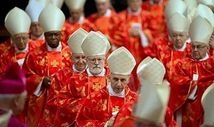
Extract from Thomas Reese SJ, Religion News Service, CathNewsNZ, 20220519
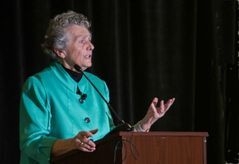
The long rescheduled Joan Chittister Australian Tour began in Melbourne on 12 May following the lifting of COVID Restrictions, and with appropriate safety measures in place.
Brief introduction by John Costa followed by an extract from Garratt Publications pre-publicity, 13 May 2022
At thirty minutes before its 7pm start the Melbourne Town hall was already 75% full. A packed hall and warm applause then greeted Sr Joan as she entered the stage with moderator Rachel Kohn. Over a 2 hour session the audience was clearly uplifted and energised by her presentation and subsequent discussion with Rachel. It was probably the largest gathering in Central Melbourne since the outbreak of COVID. The Church is not dead yet! The 90 minute session went all too quickly and the audience rose to a standing ovation. The presentation will be repeated in Adelaide on 19 May, Sydney on 31 May, and Brisbane on 3 June.
"Joan Chittister osb, an American Benedictine, and a Practical Theologian embodies the voice of wisdom and experience. Her prophetic views on justice and equality, especially for women in the church, challenges those who would silence women and people at the margins. Through her call to uncommon courage she can help us re-discover the place of religion in our society through a spirituality of engagement, so that we can all work together to reform the clerical culture that has shattered so many and damaged us all."
These events are supported by Women’s Wisdom in the Church (WWITCH), Catholics for Renewal, and Garratt Publishing.

Extract from Fr Thomas Reese, Religion News Service, National Catholic Reporter, 13 May 2022
There are numerous signs that the Catholic Church is failing in Western countries. There are few vocations, church attendance is down and young people are leaving the church in droves. There are as many theories explaining this decline as there are commentators, but the theories can be collected in two major baskets: those that blame culture and those that blame the church itself. The Catholic hierarchy tends to blame contemporary culture for the church's problems. Consumerism, individualism and secularism top their list of negative forces. The media bombards people with images and messages that are antithetical to Christianity: Happiness comes from sex, money and power. Life is too busy with work and leisure to have time for religion. The social structures that supported religion have also weakened. Ethnic neighborhoods that once reinforced religious communities and values have seen a decline as their residents have been disbursed to the suburbs. As Catholics joined the mainstream, they lost their roots. Fewer children go to Catholic schools. Interfaith marriages have increased as young Catholics socialize with non-Catholics. As they got better educated, they were less likely to follow the clergy without questions. There is a lot of truth in this cultural explanation for the church's failings, but blaming the culture is like blaming the weather. That is the world we live in; learn to deal with it. Retreating to a Catholic ghetto is not an option. The theory that the church itself is to blame for its decline features a conservative and a liberal version. Both blame the hierarchy for not dealing properly with the sex abuse crisis. Liberals stress the lack of accountability and lay involvement, while conservatives point their fingers at gay priests. Conservatives also blame the changes in the church ordered by the Second Vatican Council. Prior to the council, the church was a rock of stability and certainty in a stormy world. Change undermined the credibility of the church because change was an admission that the church was wrong in the past. One week you would go to hell for eating meat on Friday; the next week you were OK. One year you were told that the Mass would always be in Latin; the next year it would be in English. Conservatives also blame theologians for confusing the people by publicly debating moral and doctrinal matters that the hierarchy says are definitive teaching. They also believe that the social justice message of the church distracts from its traditional dogmas. Some argue that ecumenical and interreligious dialogue has led to the belief that all religions are equally valid. Emphasizing the role of the laity in the church took the priest off his pedestal and made the priesthood less attractive. Conservatives believe Pope Francis is going in the wrong direction and pray for a return to the policies of Popes John Paul II and Benedict XVI. The liberal version, meanwhile, points the finger at the hierarchy.........So the next time we have a discussion of why the church is failing, don't invite the theologians; invite sociologists, psychologists, artists, musicians and the people who have left the church.....(More). Photo:St Francis Assisi Catholic Church Nebraska, Unsplash, Creative Commons, Channel 82. NCR 20220513
Extracts from Gerard O’Connell, Anerica, The Jesuit Review, 11 May 2022
Cardinal Joseph Zen Ze-kiun, 90, was arrested in Hong Kong on May 11, according to media reports from Hong Kong and sources in Rome. He was later released on bail and is returning to his Salesian community after a brief detention at the Chai Wan police station, according to sources in Hong Kong........The cardinal, who is in frail health, has been an outspoken defender of human rights and democracy in Hong Kong and strongly critical of Beijing for its suppression of fundamental freedoms and democracy in the city. Ever an advocate of nonviolence, Cardinal Zen was arrested today along with three others.......The South China Morning Post reported that the cardinal “has been arrested by Hong Kong’s national security police, along with former opposition lawmaker Margaret Ng Ngoi-yee and singer Denise Ho Wan-sze for allegedly colluding with foreign forces, according to sources.” A fourth person, the former adjunct associate professor Hui Po Keung, was arrested by national security police on Tuesday as he was about to catch a flight to Germany, a source said. The arrests were apparently related to their roles as trustees of the 612 Humanitarian Relief Fund, which provided legal aid to people who took part in 2019 pro-democracy protests that were quashed by security forces, the U.K.-based human rights group Hong Kong Watch said. The fund closed in 2021, it said......Cardinal Zen has publicly delivered detailed critiques of Beijing. He has been close to other high-profile dissidents, and as a pastor and even after resigning as bishop, he regularly visited protestors who were detained in Hong Kong prisons ............Beijing’s ire has also been raised by the cardinal’s ongoing critique of the Vatican’s controversial 2018 deal with China regarding the appointment of bishops, an attempt to end a fractious relationship that stretched back to the time of dictator Mao Zedong. Cardinal Zen said he was concerned the deal would “kill” the unofficial or underground church in China, whose leaders refuse to register with the state-run Chinese Catholic Patriotic Association....(More) Photo: Card. Joseph Zen Ze-kiun, retired bishop HK, CNS, Bobby Yip, Reuters America, Jes Rev 20220511
Extract from Michael Sean Winters, National Catholic Reporter 11, 2022
There is an old saying: "During Holy Week, there is nothing more useless than a Jesuit." The magnificent liturgies of that holiest of times requires a profound liturgical sense. Members of the Society of Jesus have never been known for their liturgical flair and Pope Francis is no exception. When he presides, it is in a very unembellished, straightforward manner. Consequently, his remarks to the members of the Pontifical Liturgical Institute last weekend (May 7) were a bit surprising. No one should be surprised that a man of such spiritual solidity entertains deep spiritual sentiments about the liturgy, but to hear him share them was a rare insight into what makes the Holy Father tick. Much of the attention has focused on his remarks about liturgical formalism. "I would like to underline the danger, the temptation of liturgical formalism: going after forms, formalities rather than reality, as we see today in those movements that try to go backwards and deny Vatican Council II itself," the pope said. "In this way, the celebration is recitation, it is something without life, without joy." The key phrase there is "deny Vatican Council II." We have all attended post-conciliar liturgies that lack joy. But it is when the liturgy becomes a weapon in the culture wars, when doubts are raised about Vatican II and its legitimacy, when liturgy becomes an ideological expression rather than an ecclesial one, that is where the Holy Spirit is shut out and the in-breaking of the divine mystery is nullified. Francis did not mince words here: "When liturgical life becomes something of a banner of division, there is the odor of the devil, the deceiver, in there."......(More).
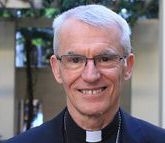
Extract from Catholic Outlook, 6 May 2022
The Australian Catholic Bishops Conference has elected Archbishop Timothy Costelloe SDB president of the Conference and re-elected Archbishop Anthony Fisher OP vice-president on the opening day of its plenary meeting. The Conference agreed that the president and vice-president’s two-year terms will commence on July 13, 2022, after the Second General Assembly of the Fifth Plenary Council of Australia. Archbishop Costelloe was appointed an Auxiliary Bishop of Melbourne in 2007 and Archbishop of Perth in 2012. He is the first president of the Bishops Conference from Western Australia and, as a priest of the Salesians of Don Bosco, the first member of a religious order to be elected president. Archbishop Costelloe will replace Archbishop Mark Coleridge, who served as president for four years. Archbishop Coleridge was ineligible to run for a third term because he will turn 75 in September 2023. Archbishop Costelloe paid tribute to Archbishop Coleridge, saying he had guided the Bishops Conference through important and sometimes challenging times. “It was Archbishop Coleridge who guided our response beyond the Royal Commission, represented the Church in Australia at the global summit on sexual abuse and steered the bishops through a pandemic and a host of other challenges,” he said. “Archbishop Coleridge has been a calm and considered leader locally and in the global Church and will be a trusted adviser for me in this new role.” Archbishop Costelloe said despite those difficulties, the Church’s ministries remain critical to Australian society. “The Church in this country is an immense contributor to our society, through our parishes, our schools, our hospital and aged care, our social services and countless other ministries,” he said. “As we continue to contemplate how we live out the Gospel in this age, including through the Plenary Council, I look forward to working with my brother bishops and the People of God to carry forward Christ’s mission.”....(More). Photo: Abp Tim Costelloe, ACBC
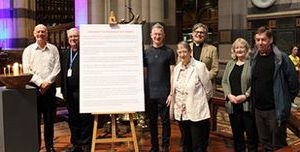
Extract from CathNews, Melbourne Catholic, 6 May 2022
Catholic leaders have joined Muslim, Jewish, Hindu and other Christian faith representatives in calling for permanent protection for refugees. A group of interfaith leaders, including Sr Brigid Arthur CSB, Rev Tim Costello and Dean Andreas gathered at St Paul’s Anglican Cathedral in Melbourne lo launch a statement urging political leaders to reconsider the needs and futures of people on Temporary Protection Visas (TPVs) and offer them permanent protection. The statement has since been signed and sent to Prime Minister Scott Morrison and Opposition Leader Anthony Albanese. Catholic signatories include Sr Brigid, Australian Catholic Bishops Conference president Archbishop Mark Coleridge, Parramatta Bishop Vincent Long OFM Conv, Port Pirie Bishop Emeritus Greg O’Kelly SJ and Catholic Religious Australia president Br Peter Carroll FSM. Julie Edwards and Tamara Domicelj, on behalf of Catholic Alliance for People Seeking Asylum (CAPSA) and its member organisations, also signed the statement, as well as other faith leaders. Sr Brigid, who has long advocated for the fair treatment of refugees and asylum-seekers, reiterated the need for government leaders to do all they could to recognise those who have made Australia home. The faith leaders raised the matter cautiously, they said, mindful of how fraught the discussion of such matters has been in previous federal elections. “We must speak because compassion and care for others are universal values shared by all major faith traditions,” the statement said.....(More). Photo: Sr Brigid Arthur other faith leaders launch refugee statement St Paul’s Anglican Cathedral, Melbourne, CathNews 20220506

Extract from CathNews, ACBBC Media Blog 5 May 2022
To help better understand the place of synodality in the Catholic Church, ecumenical leaders will attend national Uniting and Anglican gatherings this month to see how synodality works in those communities. The global Synod on Synodality has encouraged engagement with ecumenical and interfaith groups as part of the process leading towards the gathering in Rome in October 2023. The Australian Synod of Bishops committee reached out to the National Council of Churches Australia to see how the Catholic Church and other Christian communities could walk together in their synodal journeys. That conversation led to Catholics being invited to observe the Uniting Church’s Assembly and Anglican Synod, being held this month. With those events falling at the same time as the plenary meeting of the Australian Catholic Bishops Conference, key ecumenical leaders will attend and provide reports to the national Synod of Bishops committee and the Bishops Conference. Margaret Naylon, from the Archdiocese of Brisbane’s Council for Ecumenism and Inter-religious Relations, is one of several Catholics who will attend the Anglican Synod on the Gold Coast. While acknowledging the different authority and decision-making structures for Catholics and Anglicans, Ms Naylon said “it will be interesting to see where there might be overlap and also potential learnings”. Fr Michael Trainor, a priest of the Adelaide Archdiocese and member of the Council for Christian Unity and Inter-Religious Dialogue that advises the Bishops Conference, will attend the Uniting Church’s Assembly online. Fr Trainor hopes his attendance at the Uniting Assembly will allow him to “work out and confirm processes of conversation and decision-making based on issues that emerge from the lives of the faithful, from the ‘ground up’ so to speak”....(More) Photo:The global Synod on Synodality CNS Synod of Bishops, CathNews 20220505
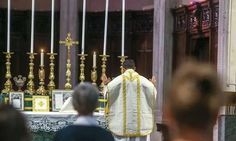
Mothers of traditionalist priests in France urge Pope Francis to reverse his decision to strictly curtail use of the pre-Vatican II liturgy.
Limited extracts from Xavier Le Normand, France, subscription journal La Croix International, 4 May 2022
A group of French women whose priest-sons regularly celebrate Mass in the Tridentine Rite have gone to Rome to ask Pope Francis to reconsider his decision to strictly limit use of the pre-Vatican liturgy. The women departed from Paris on foot, taking turns walking. They were hoping to greet the pope at his Wednesday general audience in St. Peter's Square and urge him to soften the restriction on the Old Mass, which he decreed in July......"We have come to ask the pope to reconsider his decision, in the name of unity for the Church," said Catherine Balaÿ, one of the mothers. "We want to tell him about the suffering and incomprehension of the priests and faithful affected by these restrictions," she said. Balaÿ, whose son is a priest in the Community of Saint Martin, is one of five mothers who traveled the entire route from Paris to Rome. Some forty-five others joined along the way, all of them walking only during certain stages. "The great disorientation of the faithful". Traditionalist Catholics are still struggling to accept the terms laid down in Traditionis custodes, now ten months after it was issued. Benedict XVI liberalized use of the Tridentine Rite in 2007 with his "motu proprio" Summorum pontificum. But Francis curbed that last July when he decreed that priests must now have the express permission of their local bishop to celebrate the pre-conciliar liturgy. A sign that these rules are still controversial is that the mothers of priests are arriving in Rome with more than 2,500 letters from the faithful, asking the Jesuit pope to reconsider his decision. "These letters show the great disorientation of the faithful," said Benoît Sévillia, president of the association that organized the mothers' walk and brother of a priest of the Priestly Fraternity of Saint Peter (FSSP). "We would like the Holy Father to realize that those affected by his decision fear for their faith life," he argued......(More) Photo:Tridentine, NICOLAS GUYONNET HANS LUCAS
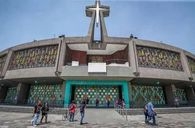
Mexican Episcopal Conference organizes country's first-ever "ecclesial meeting", bringing together bishops, priests and laity in order to "build a more synodal Church"
Limited extract from Juliette Paquier, Subscription Journal LACroix Internationl, Mexico, 27 Apri 2022
The Mexican Episcopal Conference (CEM), which is holding its 112th plenary assembly this week in Mexico City, is simultaneously holding a first-ever national "ecclesial meeting" between bishops, priests and lay people. The Church leaders called the unique gathering, which opened on Monday, a "national venue of closeness, dialogue and pastoral work". They said the aim of the weeklong meeting is to bring together "lay people, men, women, members of the consecrated life, bishops, priests, deacons and seminarians" to build a "better Church and a better country". The bishops said the event was especially important during this time of "anthropological and cultural crisis" their country is facing. "The Church in Mexico, on the move, wants to look for new ways to solve the emerging problems of our country in the context of the pandemic we are experiencing," they said. "We come together to listen to each other and dialogue together, sharing the dream of being a better Church and a better country," the Catholic spiritual leaders emphasized......(More). Photo: Basilica Our Lady of Guadalupe, DIEGO SIMÓN SÁNCHEZ AGENCIA EL UNIVERSAL RDB GDA VIA AP, La Croix Int, 20220427

Extract from Catholic Weekly, 4 May 2022
Extract from Christopher White, Vatican, National Catholic Reporter, 3 May2022 (This article appears in the War in Ukraine feature series).
Pope Francis said he has asked for a meeting in Moscow to help bring about an end to the war and warned that Russian Orthodox Patriarch Kirill, a key backer of President Vladimir Putin's fight against Ukraine, should not become Putin's "altar boy." The pope's remarks came in an interview published on May 3 in the Italian daily Corriere della Sera. In it, the pope revealed that 20 days after the war began, he asked the Vatican's top diplomat, Italian Cardinal Pietro Parolin, to communicate with Russia that Francis was ready to travel there in an effort to bring about an end to the conflict, which he likened to what took place in Rwanda 25 years ago. Although the pope did not use the word, the Vatican has recognized the 1994 violence by the Hutus against the Tutsis, which left more than 800,000 people dead, as a genocide. "We have not yet had an answer and we are still insisting," the pope said of his request to meet with the Russian leader. Francis has spoken with Ukraine President Volodymyr Zelensky twice since the outbreak of the war and, in a break with diplomatic protocol, left the Vatican on Feb. 25, the day after the war began, to travel to Russia's embassy to the Holy See to register his concerns against the conflict. In the interview, Francis again reiterated that a trip to Ukraine's capital of Kyiv was not on table at the moment, saying a trip to Russia to stop the war was the first priority....(more)
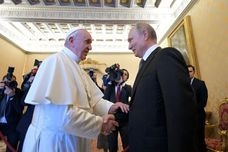
Extract from Guy Faulconbridge, Reuters, 4 May 2022
LONDON - The Russian Orthodox Church scolded Pope Francis on Wednesday for using the wrong tone after he urged Patriarch Kirill not to become the Kremlin's "altar boy", cautioning the Vatican that such remarks would hurt dialogue between the churches. Francis told Italy's Corriere Della Sera newspaper that Kirill, who has given the Ukraine war his backing, "cannot become [President Vladimir] Putin's altar boy". The Russian Orthodox Church said it was regrettable that a month and a half after Francis and Kirill, the patriarch of Moscow and All Russia, had spoken directly, the pope had adopted such a tone. "Pope Francis chose an incorrect tone to convey the content of this conversation," the Moscow Patriarchy said, though it did not explicitly mention the "altar boy" comment. "Such statements are unlikely to contribute to the establishment of a constructive dialogue between the Roman Catholic and Russian Orthodox Churches, which is especially necessary at the present time." Kirill, 75, a close ally of Putin, sees the war as a bulwark against a West he considers decadent, particularly over the acceptance of homosexuality.....The Russian Orthodox Church is by far the biggest of the churches in the Eastern Orthodox communion, which split with Western Christianity in the Great Schism of 1054. Today it has about 100 million followers within Russia and more outside. Ukraine has about 30 million Orthodox believers, divided between the Ukrainian Orthodox Church of the Moscow Patriarchate and two other Orthodox Churches, one of which is the autocephalous, or self-governing, Ukrainian Orthodox Church. Francis, 85, has asked for a meeting in Moscow with Putin about Ukraine but the Kremlin said on Wednesday there was no agreement on this......(More). Photo: Russian President Vladimir Putin meets Pope Francis at the Vatican in July 2019.

Extract from Crux, Catholic News Service, 28 April 2022
Cologne. Archdiocesan Catholics who responded to a survey preparing for the 2023 worldwide Synod of Bishops on synodality called for some big changes in the church. The German Catholic news agency KNA reported that a statement on the archdiocese’s website noted a majority of respondents called for the faithful to be given greater self-determination and demanded major curbs on the power of the church leadership and priests. Offices, ministries and functions should be assigned on a temporary basis, they said. In addition, church members should have a democratic say in matters such as the election of bishops. The Archdiocese of Cologne has just under 1.9 million Catholics, KNA reported. More than 1,700 people — about .09 percent of archdiocesan Catholics — took part in the nonrepresentative online survey, “Tell the pope — what should the future of the church look like?” They submitted more than 5,400 contributions and 1,200 comments. The survey results were summarized by an agency in accordance with social science standards. The findings showed that respondents favored a “separation of powers as in democracies” instead of “priest-centeredness.” In addition, people of all sexual orientations and those who had been married several times should feel fully accepted in the faith community, respondents said. Same-sex couples should be entitled to be blessed and married in the church, and divorced Catholics should be allowed to marry in the church again, the survey showed. Respondents also demanded an admission of guilt by the church for the “discrimination and personal injury of nonheterosexual people.” A person’s gender and sexual orientation should not affect their ability to serve in church ministries, respondents said. One May 2, Woelki and Auxiliary Bishop Rolf Steinhäuser plan to comment on the survey results at a news conference. Steinhäuser had launched the survey while representing Woelki during the cardinal’s leave of absence ordered by the pope. (More)
Photo:Cologne Cathedral, Synod of Bishops Theodor Barth KNA via CNS Crux 20220428
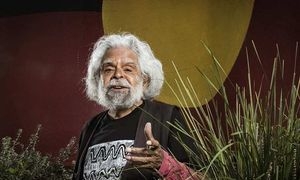
Uncle Jack Charles wasn’t even told he was Aboriginal
Limited Extract from Jack Latimore, TheAge, 28 April 2022
The actor and Indigenous rights activist on Tuesday told the nation’s first truth and justice commission to hear the impacts of colonisation and racist government policy on First Nations people of his removal from his family as a baby. Charles said he was placed in the Box Hill Boys’ Home, where he experienced “cruel and callous punishments” in the 1950s, and spoke of the cycles of incarceration, homelessness, familial dislocation and drug addiction he experienced for decades as a result of that treatment. “I wasn’t even told I was Aboriginal. I had to discover that for myself. I knew nothing, was told nothing, and had to assimilate...I was whitewashed by the system,” Charles told the Yoorrook Justice Commission on its first day of public hearings. Elders were invited to make submissions at the commission’s hearings, or wurrek tyerrang, that opened at the former site of the Victorian Aboriginal Health Service building on Gertrude Street in Fitzroy, a symbolic landmark of self-determination to First Peoples in the state since the community organisation was founded in the early 1970s. Submissions to the commission, also referred to as nuther-mooyoop (a Boon Wurrung word for truth), were designed to provide an opportunity for First Nations elders in the state to share their experiences of the impacts of colonisation, including their experiences of resilience and survival of languages and little-known histories and traditions. Nuther-mooyoop made to Yoorrook may take the form of writing, artwork, cultural artefact, photo, performance, or audio and video recording. Yoorrook commission chair Eleanor Bourke said “all ways of telling the truth are of equal importance. A nuther-mooyoop can include anything about a past or current experiences of systemic injustice for an elder, in addition to that of their family or community”. Bourke assured elders intending to make submissions that their stories would be protected and that the process would be conducted in a culturally safe way. The initial period of the wurrek tyerrang process will run until May 6 at the Fitzroy site, with a second round of sittings commencing later in May. The commission will open the hearings to all First Nation people and other Victorians later in the year.......(More). Photo:Uncle Jack Charles Victoria Aboriginal Health Service, Darrian Traynor, The Age 20220426
Extract from CathNews, Catholic Outlook, ACBC Media Blog, 28 April 2022
Parramatta Diocese has launched its “draft synthesis” document as part of the local consultation phase for the global Synod on Synodality. Between October and March, individuals and groups were invited to reflect on, and respond, to a series of questions across the Synod of Bishops’ themes of communion, participation and mission. The diocese received more than 650 responses, which were then compiled into the 10-page draft synthesis, titled “Go Out Into The Deep: Become the Church Christ calls us to be”. The document was launched at the diocese’s Synod of Bishops Exhibition Night, held online on April 21. The evening was hosted by the Diocesan Committee for the Consultation on the Synod of Bishops and the Diocesan Synod Writing Group. Feedback on the Synod logo set the scene for what the Synod is trying to achieve: people from a diverse range of backgrounds and experiences, especially people whose voices are not often heard, walking together as one towards a common purpose. Anastasia Boulus, a member of the writing group, led those present through a summary of the responses. From the responses received, the writing group drew out seven themes......(More).
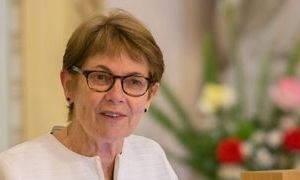
Extract from Sr Patty Fawkner, SGS, The Good Oil, April 2022. extracted here Friday 22 April 2022
Disturbing images and stories ascend from the ashes in Mariupol, Bucha and other cities whose names are now familiar. We are heavy-hearted and disturbed by the horror, the brutalisation, and the overwhelming sorrow of war, writes Good Samaritan Sister Patty Fawkner. “Rivers of blood and tears are flowing in Ukraine,” says Pope Francis. “War is madness, please stop!” But the war doesn’t stop. We cannot make sense of such idiocy and are left feeling utterly powerless. How to cope? What to do? It occurs to me that three components of Anzac Day celebrations in which many of us will participate next Monday, offer some practices that comfort, connect, and offer a prelude to action, in the face of the tragedy of war, indeed when confronted by any form of suffering. These elements of the Dawn Service are a minute’s silence, the Last Post, and four lines of poetry. We can end up with too many words in relation to war. Even now in Ukraine we have endless words of analysis and justification, demonisation and condemnation, not to mention the inevitable propaganda, disinformation and fake news. It is necessary to hear the stories, to try to understand the complex roots of the conflict, and to hold perpetrators to account......(more). Photo Sister Patty Fawkner SGS, Sisters of the Good Samaritan, The Good Oil, April 2022

Friday 22 April 2022
You may find the following resources helpful in understanding Catholic Social Teaching in anticipation of the upcoming Federal Elections.
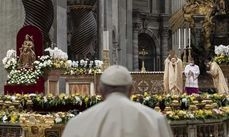
Extract from Pope Francis Easter Vigil Homily 16 April 2024, Catholic News Agency, extracted here 20220421
".....We cannot celebrate Easter if we continue to be dead; if we remain prisoners of the past; if in our lives we lack the courage to let ourselves be forgiven by God who forgives everything, the courage to change, to break with the works of evil, to decide for Jesus and his love. If we continue to reduce faith to a talisman, making God a lovely memory from times past, instead of encountering him today as the living God who desires to change us and to change our world. A Christianity that seeks the Lord among the ruins of the past and encloses him in the tomb of habit is a Christianity without Easter. Yet the Lord is risen! Let us not tarry among the tombs, but run to find him, the Living One! Nor may we be afraid to seek him also in the faces of our brothers and sisters, in the stories of those who hope and dream, in the pain of those who we suffer: God is there!".....(More). Photo: Pope Francis Easter Vigil Mass St Peters Basilica 20220416 Vatican Media

Extract from Archbishop Porteous, Catholic Weekly, reproduced from Hobart Archdiocese 11 April, extracted here 21 April 2022
......As a bishop I hope and pray that the Second Assembly for the Plenary Council will set the Church on a path of spiritual and pastoral renewal such that it will be able to meet the challenges of our time. I write what follows out of great love for the Church and deep concern for its future. On reading the working document for the Plenary Council, “Towards the Second Assembly”, I sense a church that has lost confidence in itself; a church that has lost confidence in its identity and mission. There are, of course, many good proposals in the document which flow from the various interventions in the First Assembly, but there are some things that are lacking. Overall, I sense that there is a lack of confidence in what we as Catholics have to offer our society as it loses its sense of God and abandons Christian virtue. We are at a critical moment as we witness the radical decline in faith and morals occurring in our nation. This is the time for the Church to rise up with new evangelical vigour. This is the time to turn all our attention to announcing a word of life and hope. This document, sadly, I believe, does not reflect such an intent. The language used in the document at times is more akin to that of a secular report than of an ecclesial document.......(More) . Photo: Archbishop Julian Porteous, Hobart Archdiocese, CW 20220421

Extract from Adam Wesselinoff, Catholic Weekly, 7 April 2022, extracted here 19 April 2022
Members of the Plenary Council must “tailor our expectations” in anticipation of “the inevitable disappointment and disillusionment” that will follow the Second Assembly in July, Fr David Ranson, the Secretary of the Plenary Council, has told the Australasian Catholic Coalition for Church Reform. "Many thousands of people have posted their own aspirations, and their own hopes, to the mast of this Plenary,” Fr Ranson told participants of the ACCCR webinar “The Plenary and the People”. “Our Plenary Council, cannot by its nature, rhythm and purpose address the breadth and depths of those expectations. “So my fear really is around the inevitable disappointment and disillusionment that might occur. Responding to this disappointment will be a “critical” task for the post-Plenary Church, he said. “… the Plenary agenda posed a ‘question and challenge’ insofar as ‘we said at the beginning that everything can be on the table’. Well, clearly, there is a lot that can’t be on the table.” Fr Ranson, also Vicar-General of the Diocese of Broken Bay, said the Plenary Council has faced three “inherent difficulties” during its time, singling out in particular “ambiguity as to whether we are engaged in a synod or a plenary”. It would have been better to hold a more open-ended national Synod, and to follow that with a Plenary Council “that reflected the outcome of the Synod and determined its practical, pastoral, legislative outcomes for the regional Church – which is why one holds a Plenary”. He also said the Plenary agenda posed a “question and challenge” insofar as “we said at the beginning that everything can be on the table”. “Well, clearly, there is a lot that can’t be on the table,” Fr Ranson said. The Plenary Council may have benefited from beginning with an agenda, rather than a “blank page”, he added. “We’ve sought to form an agenda out of a national listening exercise rather than begin with an agenda that enters into a national exercise of listening.”....(More). Photo:Plenary-2020_Candle. Giovanni Portello CW 20220407
Limited edited extract from James T. Keane, subscription journal America, The Jesuit Review, 19 April 2022
The first reading for the Feast of Pentecost (June 5 this year) is Acts 2:1-11. It tells the story of the Holy Spirit descending upon the apostles in Jerusalem, appearing as tongues of fire and enabling them all to speak to people of every language. It speaks to us in the Catholic Church today in a way that would be recognizable to the crowd awaiting the apostles: We too live in a religious community where we seem incapable of understanding each other, where the confusion of tongues is present in every crowd, even among our bishops. We hear in Acts that the apostles's neighbors are drawn to the commotion brought by the Holy Spirit: "Now there were devout Jews from every nation under heaven staying in Jerusalem. At this sound, they gathered in a large crowd, but they were confused because each one heard them speaking in his own language. They were astounded, and in amazement they asked, “Are not all these people who are speaking Galileans? Then how does each of us hear them in his native language? We are Parthians, Medes, and Elamites, inhabitants of Mesopotamia, Judea and Cappadocia, Pontus and Asia, Phrygia and Pamphylia, Egypt and the districts of Libya near Cyrene, as well as travelers from Rome, both Jews and converts to Judaism, Cretans and Arabs, yet we hear them speaking in our own tongues of the mighty acts of God.” Scripture scholars tell us that this is a crucial moment in the early Christian community’s understanding of itself, the kernel of what would become the “ad gentes” call to bring the Gospel to all nations. (It is also worth noting that this is the moment the Holy Spirit reverses the curse of Babel, where humanity was divided by the confusion of languages.) Just as early decisions in the Christian community about circumcision and unclean food made it possible for non-Jewish believers to become Christian, so too this moment allows for speakers of every tongue to hear the good news—to know of the mighty acts of God, spoken to every people.....(More)
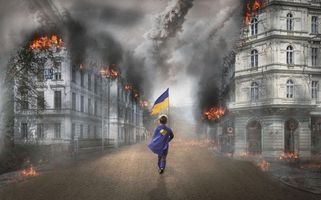
Extract from Michael Kelly*, Pearls & Irritations, John Menadue Website, 15 April 2022
There have been few lead ups to Easter in my experience more aligned with one of Easter’s central messages – bringing light out of darkness – than Easter 2022. NSW Liberal Party Premier Dominic Perrottet has called the Federal preselection process a “debacle” for the Coalition. That is an apt word to describe a lot more than the preselection mess. Floods in many parts of NSW and Queensland, recovery from bush fires, incoherence for many as the battle with natural disasters brings unanticipated challenges. Then there are the impacts that come through our television screens as we witness the mindless mayhem of Russia’s invasion of Ukraine. I, for one, wake up each day and go straight to the news websites for the latest instalment of the horrifying news of what is happening between Russia and the Ukraine. Which new innocents are being exposed to the latest iniquities by the bestial Russians? And that is why I think that it is more than a little appropriate that such events and how we are to understand them come during this aptly if paradoxically named Holy Week. What is holy about innocent suffering? Nothing as such, of course. But what it does is draw us all immediately closer to the place where we might allow God to have a hand. Our energy and resources are spent, our capacity to overpower the way things are unfolding often against our wishes or intentions is completely exhausted. That’s when God might be able to squeeze into our small world to work a mysterious liberation. Easter doesn’t come from or point to the “quick fix” bag of tricks. Quite the opposite. It’s mysterious, drawn out and usually means accepting a solution that comes as a surprise and one that arrives in forms that are unexpected. But what Easter is testament to is that God does arrive. Easter Sunday is the declaration that God remains committed to the promises of faithful love that the whole snakes and ladders of the history of Israel amounts to. God simply does not give up on liberating us no matter how dark and hopeless the corner we find ourselves in. That, for me, is the test that any affirmation of a belief in Jesus Christ and his God has to pass: does it really meet requirements in a world as dark, confused and self-defeating as ours has become? ...............(More). *Fr Michael is an Australian Jesuit. Image: Innocents exposed to iniquities by bestial Russians, Pixabay, Pearls & Irritations, 20220415

Archbishop Peter A Comensoli,15 April 2022
Friends, It is the dawn of a new creation that greets those who go out to meet the Lord. As the gospels tell us: “Early on the first day of the week, while it was still dark, Mary Magdalene came to the tomb…” Wrapped in grief and shock, Mary had come to attend to the dead body of Jesus. Dutifully and lovingly, she made her way through the remnants of the night to honour the one she loved. What she encountered there was the dawn of the risen Jesus – a light that broke into her darkened life. As Mary reached the darkened tomb, she saw the emerging Dawn, and she believed. The light of dawn also emerges for us, as the dark of night gives way to a new day. In the dawning light of the risen Jesus we, too, recognise a world reborn. He has patiently and lovingly waited for our eyes to see and our hearts to reach out to him. For Christ is the dawn into our lives; he is the light of our new day. May we emerge from our own shadows, step forward, and hasten to the Dawn of his resurrection and our re-creation. Easter blessings to you all. (More) . Photo: via Melbourne Catholic
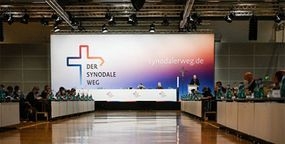
Extract from CathNews, CNS, 14 April 2022
Cardinal George Pell is among 74 bishops from four continents who have written an open letter expressing their “growing concern” about the German Synodal Path process and content, warning about its “potential for schism”. Joining recent letters of concern by the Nordic and Polish bishops, the “fraternal open letter to our brother bishops in Germany” said “the Synodal Path’s actions undermine the credibility of Church authority, including that of Pope Francis”. “By its destructive example, it may lead some bishops, and will lead many otherwise faithful lay people, to distrust the very idea of ‘synodality’, thus further impeding the Church’s necessary conversation about fulfilling the mission of converting and sanctifying the world,” the letter concluded. Signatories included Nigerian Cardinal Francis Arinze, South African Cardinal Wilfred Napier, and United States Cardinal Raymond Burke. All told, 49 bishops from the United States, four from Canada, 19 Africans, one Italian and one Australian signed the letter. The letter was made public on Tuesday after having been sent to the German bishops on Monday. The German bishops, responding to ongoing revelations of clerical sexual abuse and how bishops mismanaged such cases, see the Synodal Path process as addressing the exercise of power and authority in the Church; sexual morality; the priesthood; and the role of women....(more) Photo: German prelates third Synodal Assembly Frankfur, CNS, Julia Steinbrecht, KNA, CathNews 20220414
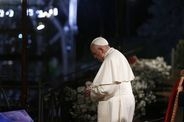
Extract from Jim McDermott, America Magazine, The Jesuit Review 12 April 12, 2022
If you’re not a Vaticanista, the announcement of the proposed reform of the Roman Curia on March 17 might have seemed like some pretty standard Catholic gobbledygook. What is the Roman Curia? And why should I care about dicasteries? Does this mean I get to go back to eating meat on Fridays? If not, why are we talking about it? But in the midst of the release of the reform document (which was actually a big deal for many reasons), Vatican experts recognized something that actually could change things for you and me in a potentially massive way. As one theological expert who worked on the constitution put it, the Vatican seems to be saying that the “power of governance in the church does not come from the sacrament of [Holy] Orders” but from one’s mission in the church. That is, being in positions of leadership in the church should not require a collar, ordination or being a man. If that interpretation proves accurate to the Vatican’s intent, it would mean not only that most of the departments in the dusty but incredibly well-decorated halls of Rome can be run by women and men who aren’t priests, but that our local parishes and dioceses could. Your sister could potentially be put in charge of the parish where I say Mass; my aunt Kathleen or Uncle Stan could even end up running the diocese someday! (And they would be awesome.) If this sounds hard to believe, let’s remember that almost all of our Catholic schools are run by incredibly talented women and men who are not priests, and have been so in most cases for decades. The same is true of our Catholic social service agencies, homeless shelters and pretty much every other Catholic institution. Even some parishes are already run by “lay administrators” who effectively serve as pastors. So it’s an expansion of a pre-existing idea, but at a much more radical scale. Basically, it’s like the moment that the internet actually became a thing, but for ecclesial authority—a change that could expand access to leadership so radically as to transform our church entirely. Welcome to the future! It’s all finally happening! Or so I thought, until some diocesan priest friends rolled their eyes so hard at my enthusiasm that I thought they were going to fall over. “You really think church leaders are about to hand over any of their authority?” one asked me. “What channel are you watching?”..........(More) Photo: Pope Francis Good Friday Colosseum CNS Paul Haring, America_Jes_Rev 20220412

Extract from Jo Harper, ThefirstNews, 6 April 2022, extracted here 13 April 2022
The woman who played the ‘girl in the red coat’ in Steven Spielberg’s film Schindler's List is now helping Ukrainian refugees on the Polish border. Oliwia Dąbrowska, who shot to fame at the age of three after appearing in the 1993 Oscar-winning epic, wrote on Instagram that she is leading a group of volunteers providing aid to refugees as they arrive in Krościenko. Posting a pic of herself on March 13 wearing a high-vis jacket, the 32-year-old said: “Today Russia bombed Yavoriv. Only 20 kilometers from Poland. So close! I'm scared, but that only motivates me more to help refugees. In a Livestream posted to Instagram the following day, Dąbrowska said: "I don't wait for things and no-one from our group of volunteers wants to hear thank you, we just do our job. "The people need help and we give them help. I really care about every single person on the border. "I found homes for ten families, also... I can't count how many transports for refugees from the border to Kraków...and other places in Poland.” She added: "I will do everything I can, I will never forget these people, those faces, those eyes, I will never forget what I've seen. “You can't prepare for that, you can only imagine there will be suffering people, children, old people, the sick."....(more) Photo:Woman who played Schindlers List Girl in Red Coat hero, ThefirstNews 20220205

The Plenary Council, cannot by its nature, rhythm and purpose address the breadth and depths of thousands of expectations, syas Fr David Ranson
Extracts from Adam Wesselinoff, Catholic Weekly, 7 April 2022
Members of the Plenary Council must “tailor our expectations” in anticipation of “the inevitable disappointment and disillusionment” that will follow the Second Assembly in July, Fr David Ranson, the Secretary of the Plenary Council, has told the Australasian Catholic Coalition for Church Reform. “Many thousands of people have posted their own aspirations, and their own hopes, to the mast of this Plenary,” Fr Ranson told participants of the ACCCR webinar “The Plenary and the People”. “Our Plenary Council, cannot by its nature, rhythm and purpose address the breadth and depths of those expectations. “So my fear really is around the inevitable disappointment and disillusionment that might occur. Responding to this disappointment will be a “critical” task for the post-Plenary Church, he said. “… the Plenary agenda posed a ‘question and challenge’ insofar as ‘we said at the beginning that everything can be on the table’. Well, clearly, there is a lot that can’t be on the table.” Fr Ranson, also Vicar-General of the Diocese of Broken Bay, said the Plenary Council has faced three “inherent difficulties” during its time, singling out in particular “ambiguity as to whether we are engaged in a synod or a plenary”. It would have been better to hold a more open-ended national Synod, and to follow that with a Plenary Council “that reflected the outcome of the Synod and determined its practical, pastoral, legislative outcomes for the regional Church – which is why one holds a Plenary”. He also said the Plenary agenda posed a “question and challenge” insofar as “we said at the beginning that everything can be on the table”. “Well, clearly, there is a lot that can’t be on the table,” Fr Ranson said. The Plenary Council may have benefited from beginning with an agenda, rather than a “blank page”, he added.........“We’ve sought to form an agenda out of a national listening exercise rather than begin with an agenda that enters into a national exercise of listening.” The COVID-19 pandemic, climate change and the war in Ukraine have also left people fragile, vulnerable, tired and disengaged with the Plenary process. Fr Ranson said he hoped that the Plenary Council may yet surprise the Church, even though it would likely result in “something quite limited”. He encouraged participants of the ACCCR webinar to “tailor our expectations”, in part by thinking of the Plenary as part of a “wider impetus that is afoot”. Members need to look for local ways to “implement synodality” and avoid “beating our heads up against a brick wall”, Fr Ranson said.....(More). Photo: Plenary Council, cannot address expectations, Fr David Ranson, Giovanni Portelli, Catholic Weekly 20220407

Extract from Thaddeus Jones, Catholic Outlook, 7 April 2022
Pope Francis visits with migrants at the John XXIII Peace Lab Centre during his final event in Malta, and warns humanity that we face a shipwreck of civilization, which threatens not only migrants but all of us, if we do not conduct ourselves with kindness and humanity. On Sunday afternoon, Pope Francis visited Malta’s “Pope John XIII Peace Laboratory,” founded in 1971 by Franciscan friar Dionysius Mintoff, following an appeal made by Pope John XXIII, who called for the world to reflect on peace. Two of the migrants present, Daniel and Siriman, shared their difficult personal stories of fleeing their homelands and the life-threatening challenges they faced along the way. Daniel, from Nigeria, had given the Pope a painting he made depicting his shipwreck as he travelled across the Mediterranean Sea, where some of his friends died. Pope Francis gifted painting by a migrant from Africa Pope Francis thanked them, also on behalf of the many others forced to leave their homelands in search of a secure refuge, for opening their hearts and sharing their lives. Repeating what he said in when he returned to Lesbos in December 2021, the Pope said: “I am here… to assure you of my closeness… I am here to see your faces and look into your eyes,” assuring them that he always remembers them and keeps their plight in his heart and prayers. Continuing a tradition of ‘unusual kindness’ Recalling the “unusual kindness” with which the Maltese welcomed the Apostle Paul and his companions when they were shipwrecked on Malta – which also provided the theme of this Apostolic Journey – the Pope expressed his hope that Malta may continue in this ancient tradition in how it treats those arriving on its shores today. He recalled the many thousands of men, women, and children fleeing war and poverty, and risking their lives crossing the Mediterranean for safer shores, with so many sadly ending in tragedy. Stopping the ‘shipwreck of civilization’ The Pope warned that we risk a “shipwreck of civilization” with this reality, but that “by conducting ourselves with kindness and humanity” we can keep the ship afloat. In practice, he said, this means putting ourselves in the shoes of those fleeing their homelands, trying to understand their life stories, knowing that it could be us – or our sons and daughters – and doing whatever we can to help out.....(more) Photo: Pope Francis Malta Migrants Cath Outlook 2022220407

Extract from Opinion Piece, The Age, 7 April 2022
What exactly was the point? The wasted years locked up in hotel rooms, behind tinted windows that wouldn’t open to let in fresh air and sunlight. People growing paler, sicker and more broken. One man, Ismail Hussain, said he spent his days at Melbourne’s Park Hotel lying on his bed. He took sleeping tablets day and night to make the time pass more quickly. On Thursday, this ugly era at the Park Hotel finished, its eight remaining refugees released into the community. Another 12 refugees were released from detention in other centres around the country, including six in Brisbane. If they could be released now, why not two years ago? What was the point? Hundreds of people were rushed from Papua New Guinea and Nauru to Australia in 2019 for emergency medical attention on the advice of doctors, under the short-lived medevac legislation. They came with post-traumatic stress disorder, rotting teeth, chest pains, suffering the after-effects of suicide attempts (including one man who had set himself on fire and suffered extensive internal and external burns) and other debilitating conditions. They may have expected to receive medical care. Instead, as then home affairs minister Peter Dutton confirmed to Sydney radio station 2GB last year, “many of these people didn’t receive any medical treatment”....(more). Photo: Refugees behind windows Carlton Park Hotel, Diego Fedele Getty Images The Age, 20220407

Extract from John Warhurst, Eureka Street, 5 April 2022
The 280 Plenary Council (PC) Members have just taken another major step towards the Second Assembly in Sydney on 3-9 July. Yet it is difficult to have a proper public conversation about this step because it has taken place behind closed doors. On 28 February, the PC authorities published Towards the Second Assembly: A Working Document for Members. They also advised Members on how to approach their task of discernment, asking us to respond by 4 April. Feedback and input from Members, said Bishop Shane Mackinlay, Vice-President of the Council, was critical, but that, in revising the document, ‘important contributions’ would also be made by ‘various committees and advisors’. The Australian Catholic Bishops Conference will consider the revised document at its May meeting, after responses by Members are considered by the Drafting Committee. The final resolutions for the Second Assembly will then be released publicly at the beginning of June for public discussion. Towards the Second Assembly comes a long way under the guidance of the four writing groups, whose membership has not been made public, although Members were informed and the names of the Drafting Committee and the periti are no secret. Though it is a mixed bag, it is probably the best document emerging from the PC, making it even more frustrating that it is not in the public domain. The PC authorities remain resolute that the process will remain ‘in house’ as far as possible. The document is addressed to the Members alone and we have been discouraged from making it more widely available. We have been advised that it is not a secret document and that we are not gagged, but that we should not pass it on to others. It is none the less in limited public circulation. 'The wider Catholic community should be able to read and discuss Towards the Second Assembly. Yet it is officially prevented from doing so. It is not too late for this decision to be reversed. Meanwhile Catholics should try to get hold of a copy.' The PC authorities must have heard the many voices from the wider Catholic community over the past four years urging a broader involvement in its deliberations. But those voices have been deliberately excluded in favour of a discernment bubble. PC Members have never been directly asked their opinion of this approach, though some of us have registered our disagreement on this point to no avail. The wider Catholic community is ‘on the outer’ from the time of the release of the Fruits of the First Assembly in December 2021 until the release of the final proposals for the Second Assembly in June 2022. For six whole months the discernment and discussion will officially be private and the final outcomes of the Second Assembly will be the poorer for it. This will make the final four weeks more hectic than it should be. Towards the Second Assembly has four sections: Communion, Diversity and Participation; Ecclesial Leadership and Governance; Missionary Disciples in the World; and Reconciliation, Compassion for the Wounded and Care for our Common Home.......(More) . Photo: John Warhurst

A look at who's currently in charge in the Roman Curia and who stands in the wings
Limited extract from Robert Mickens, Letter From Rome, Subscription Journal La Croix International, 2 April 2022
Pope Francis has raised the hopes of many Catholics with the publication of Praedicate Evangelium, the apostolic constitution that effectively reforms the mission and structures of the Roman Curia. But -- as it was noted here last week -- those hopes could be dashed if the pope does not appoint the right officials and staffers to vigorously implement the reform. "He must find people who are 100% on board with the vision for the Curia he has spelled out in Praedicate Evangelium. And they must be just as committed to the type of dynamic missionary Church that he puts forth in Evengelii gaudium, the blueprint of this pontificate," it was stressed. Francis has the opportunity to make a number of key personnel changes immediately due to the advanced ages of many current officials. His new document states that Curia officials serve for an initial five-year term, which can be renewed for good reasons. But some of the current Vatican chieftains have been in office well over two such terms. The pope needs to set the tone right away and make new appointments audaciously so that the provisions of his reform are properly put in motion and gain traction. There is no guarantee that his successor(s) will do so. Here are the new "dicasteries" in the order in which they appear in the apostolic constitution and the positions that need to be filled. Evangelization. This dicastery is a merger of the former Congregation for the Evangelization of Peoples (Propaganda Fide) and the now-defunct Pontifical Council for Promoting the New Evangelization. Those previous offices will now form two sections of this single dicastery. One section will be headed by Cardinal Luis Tagle, the 64-year-old Filipino who was appointed head of Propaganda Fide just three years ago. He's not going anywhere..................(then Doctrine of the Faith; Service of Charity; Eastern Churches; Divine Worship and Discipline of the Sacraments; Causes of Saints; Bishops; Clergy; Institutes of Consecrated Life and Societies of Apostolic Life; Laity, Family and Life; Promotion of Christian Unity; Interreligious Dialogue; Culture and Education; Service of Integral Human Development; Legislative Texts; and Communication)........(More) Photo: Pope Francis, photo Alessandro Di Meo EPA MAXPPP La Croix Int. 20220402

Extract from CathNews, Crux, 1 April 2022
More than 4 million people have fled Ukraine in the past five weeks, and half of them are children, two United Nations agencies have said. “Children make up half of all refugees from the war in Ukraine,” UNICEF, the UN children's agency, said on March 30 in a media release that included data from UNHCR, the UN refugee agency. UNICEF estimated that 2 million children have fled in search of safety across borders, and an additional 2.5 million children are displaced within the country. That means about 60 per cent of all children have been forced from their homes since the conflict started on February 24, it said. The UNHCR reported that 6.5 million people have been displaced internally within Ukraine and more than 12 million more have been affected in the areas hardest hit by the war. “Humanitarian needs are increasing exponentially,” it said. With the latest figures, nearly 10 per cent of the 44 million people who lived in Ukraine before the conflict have become refugees, according to the UNHCR estimates as of March 30. Those figures could be higher, it added. “The situation inside Ukraine is spiralling,” said Catherine Russell, executive director of UNICEF......(More). Photo: Refugees from Ukraine arrive Berlin, CNS, Fabrizio Bensch, Reuters, CathNews 20220401
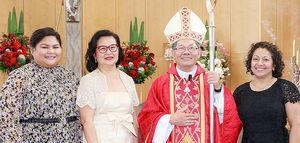
Extract from Francesca Merlo, Catholic Outlook, 31 March 2022
Pope Francis addresses women from the Italian Women’s Centre and stresses the importance of their voice, in changing the way the world is governed: from a logic of need for power, to one of care and service. In his discourse he turns his thoughts to Ukraine, calling for disarmament and the pursuit of world peace. Addressing members of the Italian Women’s Centre, in Rome for their elective Congress, Pope Francis commented on the “wide-ranging” theme chosen for the occasion: “The creative identity of man and woman in a shared mission”. The Pope described it as being “a very topical issue”, in the theoretical sense and especially in the existential sense. The centre and its context The Italian Women’s Centre – from the Italian Centro Italiano Femminile (CIF) – was founded in 1944, “in a context of defending the dignity and rights of women”. The Pope noted that in that period following the Second World War, the CIF was born “as a choice of responsibility, of commitment to ‘safeguarding the human'”. Pope Francis went on to note that the first national president of CIF, Maria Federici Agamben, together with other women’s representatives and across party lines, “participated in the drafting of some articles of the Constitution and influenced the constitutional ‘philosophy’ on the issues of solidarity, subsidiarity, and the secularity of the state”.....Governance The CIF, then as now, expresses this vision of politics as a service to the common good animated by charity. In light of this, Pope Francis went on to say that for those belonging to his generation “it is unbearable to see what has happened and is happening in Ukraine”. Unfortunately, he explained, that “this is the fruit of the old logic of power that still dominates so-called geopolitics” and that the problem remains the same: that “the world continues to be governed as a ‘chessboard’, where the powerful study the moves to extend their dominance to the detriment of others”. The real answer, continued the Pope, is “not more weapons, more sanctions, more political-military alliances”, but rather a different approach, “a different way of governing the world, which is now globalised, and of establishing international relations.”....(more) Photo:Bishop of Parramatta with executive members Parramatta Diocesan Pastoral Council, Catholic Outlook 20220331
Extract from Joshua J. McElwee, NCR Online,29 March 2022
Chicago — A group of about 70 cardinals, bishops and theologians gathered privately for two days here from March 25-26 for conversations focused on how the U.S. Catholic Church can better support the agenda of Pope Francis. Through a series of keynote presentations and panel discussions centered on tracing the roots of Francis' papacy to the 1962-65 Second Vatican Council, invited participants also considered the opposition the pope continues to face from some quarters of the U.S. church, more than nine years after his March 2013 election. Honduran Cardinal Oscar Rodriguez Maradiaga, one of the attendees, told NCR that part of the purpose of the event was to "understand the spirit of what they call the 'opposition.' " "We have this what they call 'opposition' to the pope. It's trying to build walls, going backwards — looking to the old liturgy or maybe things before Vatican II," said Rodriguez, who is also the coordinator of the pope's advisory Council of Cardinals. "Vatican II is unknown by many of the young generation," said the cardinal. "So, it's necessary to come back and to see that all the reforms of Pope Francis are rooted in Vatican II." The event, which carried the title "Pope Francis, Vatican II, and the Way Forward," was co-organized by Loyola University Chicago's Hank Center for the Catholic Intellectual Heritage, Boston College's Boisi Center for Religion and American Public Life, and Fordham University's Center on Religion and Culture. Also helping with the organization was NCR political columnist Michael Sean Winters. The conversations were held under the "Chatham House Rule," meaning attendees agreed they could speak afterwards about the contents of the discussions but not reveal who had made any particular comment, with hopes of fostering a more open and forthright atmosphere......(More)

Extract from Synodality, Geraldine Doogue, Michael Kelly, SJ, Laciviltacatholicca 25 March 2022
In 2018 the People of God in Australia began preparing for their first Plenary Council since the Second Vatican Council. After delays due to the pandemic, the Australian Catholic Church gathered for the first Assembly of this Plenary Council in Adelaide, October 2021. A second assembly will be held in June 2022. “It’s the first time really, the first time, in Australian church history that there has ever been an effort to listen to anybody else but official voices. And that means those participating have to learn a whole lot of new skills and aptitudes to be able to make the thing work,” La Civiltà Cattolica, English publisher Fr Michael Kelly says. In this podcast, Fr Kelly interviews Geraldine Doogue, one of Australia’s most respected journalists, about the Council and its processes. Geraldine works for the Australian Broadcasting Corporation presenting Saturday Extra for ABC Radio National and Compass for ABC TV. She is one of the most experienced people in Australian media. An informed and searching Catholic, she has followed the recent, landmark Australian Plenary Council meetings to understand the way these have and will contribute to the growth of the Church she loves. “There are groups trying to derail this but I think there’s a broad bulk of middlebrow Catholics who are members, who are determined that it be a genuine process,” Doogue says. But with such opposition could that process be a Pandora’s Box?.....(More) Image:synodality-young-people Laciviltacattolica 20220325

Extract from Terry Fewtrell, Pearls & Irritations, 24 March 2022
The Australian Catholic Church’s Plenary Council is heading for the rocks amid sharp recriminations. What was meant to be a showcase of genuine listening and walking together is unravelling with an unedifying lack of goodwill from the bishops. By refusing to deal openly with legitimate criticisms of an indefensible process, Australia’s bishops are being more than stubborn. They are revealing their latent opposition to Pope Francis, who has work to do if his local bishops are to be on-side with his call for a synodal church. The bishops called a Plenary Council in 2018 in the wake of the Royal Commission. It was meant to be a long overdue reset and an opportunity for the local church to take stock and adjust its course. President of the Australian Bishops Conference, Mark Coleridge of Brisbane, has proclaimed loudly to local and international media that ‘business as usual’ outcomes are not an option. Coleridge is an outspoken supporter of Pope Francis and his emphasis on Synodality – a model that Francis invokes to describe a church in the spirit of Vatican II, that respectfully engages all the People of God, listens genuinely to their voices, and moves forward together. In this Coleridge is a stand-out among the Australian bishops, as some give the impression of having reached a point where they are prepared to ‘sit out’ the rest of this pontificate in the hope the next will return to a more comfortable orthodoxy. Not that they would admit that, but their actions, or sometimes lack of action, betray them. These differences seem to be playing into the management of the Plenary, which has admittedly been severely impacted by the pandemic. The first Assembly meeting was delayed a year and finally held ‘virtually’ in October 2021. Plans and draft resolutions are now emerging for the Second and final Assembly in July 2022 and it is this First Fruits document that has finally provoked outrage from large parts of the Catholic community, with calls it be withdrawn. This latest document shares a characteristic of others released during the process, in giving the clear impression that there is an invisible hand, intent on ensuring real issues are avoided and meaningful change is pushed off the table. On this occasion various propositions and ideas are being advanced ‘out of the blue’ and certainly without any obvious connection to discussion at the October Assembly. They are unattributed to individuals or discussion groups, and Members report they are at odds with the general thrust and focus of discussions in the First Assembly. Not surprising the propositions are skewed towards a traditionalist view. Individual Members of the Assembly have objected to the lack of provenance and transparency in the document and sought clarification as to the origin of certain propositions. Their enquiries and objections have been ignored – a stock standard approach for the Australian hierarchy....(more). Image: Australian Catholics realists pace change in their church, Flickr, Eric Wilson Pearls & Irritations, 20220324
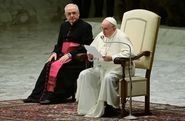
Limited extract from Christophe Henning, France, Subscription Journal LA Croix International, 24 March 2022
In his reform of the Roman Curia, Pope Francis has strengthened the role of national and regional episcopal conferences in the universal Church's mission. The primary objective of Pope Francis' new apostolic constitution Praedicate evangelium is to reform the Catholic Church's central bureaucracy at the Vatican, known as the Roman Curia. But this (r)evolution also has an important impact on the national and regional episcopal conferences, which the 85-year-old pope wants to be more closely associated with the mission of the universal Church. "It is a way of presenting the life of the Church as 'one' and diverse according to places and histories," emphasizes Joseph Doré, a theologian and retired archbishop of Strasbourg who is the same age as Francis. "It's a call to co-responsible commitment for the life of the universal Church," says the archbishop, a member of the prestigious Sulpician teaching order. "Episcopal conferences, including their regional and continental unions, are currently one of the most significant means of expressing and serving ecclesial communion," the pope states in the opening pages of Praedicate evangelium. "Collegial spirit"....(More) Photo: Pope Francis general audience, VINCENZO PINTO AFP, La Croix Int, 20220324

Extract from CathNews NZ, 24 March 2022
Priests throughout the world should play an active role in contributing to the synodal process, according to two senior Catholic prelates. In a letter addressed to all Catholic priests, Cardinal Mario Grech and Archbishop Lazarus You Heung-sik said priests should try to help show the church as a welcoming home inhabited by the Lord and enlivened by love. Grech is secretary-general of the Synod of the Bishops, and You is the prefect of the Vatican Congregation for Clergy. “It is well known that today’s world is in urgent need of fraternity. Without realising it, the world yearns to meet Jesus,” they said in a letter to the world’s priests, including those who are also bishops and cardinals. In order to help people encounter Jesus, priests “need to listen to the Spirit together with the whole people of God, so as to renew our faith and find new ways and languages to share the Gospel with our brothers and sisters,” they wrote. The two heads of dicasteries want to encourage priests to accept the invitation of Pope Francis “to set out, together, in mutual listening, in sharing ideas and projects, to show the true face of the Church: a hospitable “house”, with open doors, inhabited by the Lord and animated by fraternal relationships”. The synodal process, they wrote, “is a novelty that can arouse enthusiasm as well as perplexity,” even though practising synodality, that is, “walking together,” was how the church lived in the first millennium. The cardinal and archbishop noted priests may experience fear regarding the call to help make the process fruitful. Rather than dwell on the fears, Grech and You asked the priests to make a threefold contribution to the synodal process: Do everything so that the journey rests on listening to and living the Word of God. Let us strive to ensure that our journey is marked by mutual listening and mutual acceptance. Take care that the journey does not lead us to introspection but stimulates us to go out to meet everyone. “As pastors, we can do much so that love might heal relationships and heal the wounds that often affect the fabric of the church, so that the joy of feeling that we are one family, one people on a journey, children of the same father and therefore brothers and sisters to one another may return, beginning with the fraternity of priests,” they said. “Synodality is truly God’s call for the church of the third millennium. Setting out in this direction will not be free of questions, fatigue and setbacks, however, we can be confident that it will return to us a hundredfold in fraternity and in fruits of evangelical life,” the two prelates wrote.....(more). Photo: Pope Francis and Synod-letter-to-priests CathNews NZ
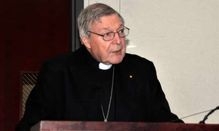
Extract from Adam Wesselinoff, Catholic Weekly, 24 March 2022
Those leading the Church’s pivot to “synodality” need to give Catholics more clarity about their goals, Cardinal George Pell has said in a wide-ranging interview with The Spectator’s religion editor Damian Thompson. “The first is I think we should ask those who are leading it just what they hope to obtain from it, and how they hope to do that,” Cardinal Pell said on Thompson’s podcast, Holy Smoke. “As well as those abberant views that may have been proposed in Germany, in many parts of the Church, as well as a degree of nonsense, good people are proposing sound Catholic teaching. “But I think we need a little bit more clarity from those driving the process about what they hope to achieve.” Cardinal Pell stressed that comparisons with Anglicanism have their limits, because “according to its own thinking” Catholic synodality “is not seen as a type of parliament”. “I think it’s said quite explicitly that the range of views discussed will be presented to the Pope, and then the Pope will choose what he does with them. Quite different from the Anglicans.” Church unity should not be taken for granted, Cardinal Pell added. “It is a great blessing, built up and maintained over the centuries by good people and careful people. And we’ve got to be very careful that we don’t unconsciously damage it. “Now the potential for differences; tensions between national synods, is very real. But even perhaps more so between continental synods.”....(more). Photo:Cardinal George Pell 2021 CNS, Catholic Weekly 20220324.

"Praedicate evangelium" says "any member of the faithful" can head departments within the Catholic Church's central bureaucracy, known as the Roman Curia
Limited extract from Xavier Le Normand, France, Subscription journal LaCroix International, 20220323 Will the laity take over running the Vatican? While that seems a bit far-fetched, it will now be possible for "any member of the faithful" to "preside" over one of the various departments (known as "dicasteries") of the Roman Curia. At least that is the novel provision found in Praedicate evangelium, the apostolic constitution that Pope Francis signed on March 19 to codify his reform of the Catholic Church's central bureaucracy located at the Vatican. When the new text comes into force on June 5, priestly or episcopal ordination will no longer be required to lead institutions of the Holy See. Previous apostolic constitutions regulating the Roman Curia stipulated that the top jobs were reserved for cardinals and archbishops. While the previous texts linked power of governance to episcopal ordination, the new one specifies that the Roman Pontiff can name any baptized person (male or female) to exercise "vicarious power". In other words, whoever exercises power in the Roman Curia does so as a delegate or vicar of the pope. "A very complex debate" Pope Francis has thus weighed in with great magisterial authority -- given the nature of an apostolic constitution -- with his interpretation of a debate that has long been going on within the Church. What is the source of governing power in the Church? Do bishops receive it with their episcopal ordination or from the canonical mission they have received, that is, from the mandate given to them by the pope? "It's a very complex debate," said Mgr Patrick Valdrini, a canon lawyer who is also a canon of Saint John Lateran. He pointed out that current practice does not allow for a clear answer. The Code of Canon Law promulgated in 1983 by John Paul II did not provide a definitive answer to the question. While it is stated that "those who have received sacred orders are qualified" for the power of governance, it is immediately added that the laity can "cooperate" in "the exercise of this same power" (canon 129).....(more). Photo: Nathalie Becquart, undersecretary, Synod of Bishops, ROCCO RORANDELLI TERRAPROJECT, La Croix 20220323
The pope is making his governing apparatus more internationally-oriented, adopting best practices from Catholics around the world
Limited extract from Loup Besmond de Senneville, Vatican City, Subscription journal L Croix International, 22 March 2022
Is Pope Francis putting an end to the Roman Curia's age-old dominance over the universal Church? With the publication last Saturday of his new constitution Praedicate evangelium, he has greatly redefined the scope and the role of this central bureaucracy located in the Vatican. The new text, which contains 250 articles, comes into force on June 5. And some are predicting that it will end up weakening what has been, up till now, an all-powerful administration seen to be disconnected from what's going on at grassroots Catholicism. A change of culture already underway. In fact, Francis has affirmed that the Roman Curia is no longer just an administration at the service of the pope, but a form of mission at the service of the bishops. And in doing so, he is saying the mission of those who staff these Vatican offices is, first and foremost, to serve and assist the Church, and no longer exercise control over it. The new apostolic constitution, which is some 54 pages and only in Italian at the moment, actually makes explicit a change in culture that has already been gradually implemented since the beginning of Francis' pontificate. "Several years ago, when we came, we had the impression of being in front of inspectors," said a French bishop last autumn while he and his confrere were in Rome for their once-every-five-years "ad limina" visit. "Now it feels like we are being listened to more. Our interlocutors ask us questions, listen to us," the bishop said. "The atmosphere is totally different." Helping better connect with the Church around the world.......(more)
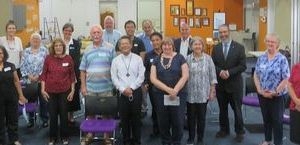
Extract from St Columban Mission Society, 21 March 2022
An extraordinary event took place on 24 February 2022. It was truly ground-breaking! The Columban Centre for Christian-Muslim Relations hosted a consultation for the XVI Ordinary General Assembly of the Synod of Bishops. We invited representatives from the dioceses of Broken Bay, Parramatta and Sydney, and the Melkite, Maronite and Chaldean Churches. About 20 people participated, including laity, religious, priests and a bishop. They represented families, parishes, youth, education, chancery and diocesan agencies. We followed the directions on the Synod page of the ACBC website. However, instead of Communion, Participation and Mission, with encouragement from the Mission Engagement Team of the Diocese of Parramatta, we focussed exclusively on Interreligious Dialogue. Instead of written reflection questions, we had three speakers. So far, nothing particularly unusual! Here is the break-through! Instead of Catholics talking among themselves about how to relate to other faiths, we invited a male Jewish rabbi and a female Muslim scholar to share their hopes and expectations of Catholic attitudes and behaviours towards Jews and Muslims respectively. A bishop, priests, and lay faithful listening to what others hope for and expect from Catholics! Unprecedented! Unheard of! Even the Rabbi found it so unusual that he consulted Rabbi David Rosen in Jerusalem, an international figure in the interfaith scene, who, recognising the significance of the occasion, had a long phone conversation sharing insights with his Australian colleague....(more). Photo: Interreligious Dialogue for the Synod of Bishops, Columban 20220321
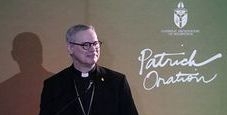
Melbourne Archbishop Peter A Comensoli says the Church is at a “threshold of transition”, posing the challenge of finding healing, purpose and destiny through the domestic church — family households.
Extracts from CathNews, Melbourne Catholic, 18 March 2022
Archbishop Comensoli delivered the 2022 Patrick Oration at the Catholic Leadership Centre in Melbourne yesterday, the feast day of St Patrick, patron saint of the archdiocese. In his oration last year, Archbishop Comensoli drew parallels between the early Church and the experience of the Victorian community through the pandemic, describing the "state of ebb and flow" as the new normal and the place from which a renewed sense of gospel energy needed to emerge. “We should not miss that COVID has shifted and sifted us,’ he said at the time. ‘How might we become the leaven needed for a more human way of living in this new world still emerging? Perhaps we can learn from our faith ancestors, in finding our identity by way of our households.” The Archbishop continued to build on this theme of exile and domesticity at this year's Patrick Oration, homing in on the place of the domestic church – the family – as a place where generations could learn a sense of communion, formation and mission. "We might describe these vocational tasks by way of three active verbs: to pray, to learn, to love." The home, Archbishop Comensoli proposed, remains the prime location within which faith can be formed and nurtured, especially in this time of increased isolation and fragmentation. “There are many stories of the apostles going to households and neighbourhood communities to invite families into a common life in Christ,” Archbishop Comensoli said. “There is virtually no evidence throughout the New Testament of the Church engaging in the politics of the day or seeking to plant the works of the Church in public structures. The focus was personal and familial and communal ... The early Church was a Church that assembled and passed on the faith in family homes.”....(More). Photo:Archbishop_Peter_Comensoli-Patrick Oration, Melbourne Catholic 20220318

Extract from CathNews NZ, 17 March 17th, 2022
“Pope Francis wants to hear from you” – all of us. This is the message the Catholic Church in Aotearoa New Zealand is using to invite people – Catholic or not – to take part in a survey for an international synod on the future direction of the Church. The Catholic Church world-wide is conducting a two-year synod process to let the Pope know what ordinary Catholics think. Begun by Pope Francis last October, the process is currently asking Catholics in parishes and dioceses for their views. “…the purpose of this Synod is not to produce more documents. Rather, it is intended to inspire people to dream about the Church we are called to be, to make people’s hopes flourish, to stimulate trust, to bind up wounds, to weave new and deeper relationships, to learn from one another, to build bridges, to enlighten minds, warm hearts, and restore strength to our hands for our common mission” says the Synod Preparatory document issued last November. Bishop of Auckland and Secretary of the NZ Catholic Bishops Conference, Bishop Stephen Lowe, says the country’s six dioceses have embraced the opportunity for people to have their say in synod conversations taking place in parishes, schools and Church organisations....(more). Photo: Bishop Stephen Lowe Auckland, Secretary NZ Catholic Bishops Conference, Cathnews NZ 20220317
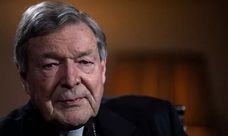
Extract from CathNews, National Catholic Register, 17 March 2022
Cardinal George Pell has called on the doctrinal watchdog to reprimand two European bishops for what he said was their “wholesale and explicit rejection” of the Church’s teaching on sexual ethics. Source: National Catholic Register. In a statement released on Tuesday, Cardinal Pell asked the Congregation for the Doctrine of the Faith to “intervene and pronounce judgment” on comments made by Cardinal Jean-Claude Hollerich, the relator general of the Vatican Synod on Synodality, and Bishop Georg Bätzing, president of the German Bishops’ Conference. Cardinal Pell had made the appeal a few days earlier, in an interview given to the German Catholic television agency K-TV. Jesuit Cardinal Hollerich of Luxembourg and Bishop Bätzing of Limburg have both called for changes to the Church’s teaching on homosexuality in recent interviews. Cardinal Pell said such teaching was “erroneous,” as it “not only rejects the ancient Judeo-Christian doctrines against homosexual activity, but undermines and rejects the teaching on monogamous marriage, the exclusive union of a man and a woman.” He said he recognised the challenges faced by declining numbers of faithful in German-speaking countries and elsewhere, but added that the only possible response should be to “rediscover the promises of Jesus” and embrace more closely the “undiminished deposit of faith.” He stressed that the solution was “not to follow the changing dictates of contemporary secular culture,” adding that, “as Pope Paul VI pointed out many years ago, this is a path to self-destruction for the Church.”....(More). Photo:Cardinal George Pell, Daniel Ibanez CNA, EWTN, Cathnews 20220317

Extract from CathNews NZ, CNA,, 17 March 2022
In Germany’s industrial Ruhr area, the Diocese of Essen is the first diocese in the country to appoint a group of women to administer the sacrament, reported CAN Deutsch. Church law stipulates that only an ordained minister—a priest or deacon—is the ordinary minister for Baptism. However, the bishop can authorise another person to perform the ceremony if a priest is not available and, in an emergency, anyone can baptise. Theresa Kohlmeyer, head of the department of faith, liturgy, and culture in the diocese, said that the step was necessary because there were “fewer priests than in the past. “Time and again, the Church has reacted to external circumstances over the past 2,000 years,” added Kohlmeyer. Bishop Franz-Josef Overbeck of Essen explained that the decision to commission lay people — 17 women and one man — is a temporary measure and will initially last for three years. Overbeck said the action allowing women to perform baptisms was a response to “a pastorally difficult situation.” Canon 861 of the Code of Canon Law says that “the ordinary minister of baptism is a bishop, a presbyter, or a deacon.” It adds that “when an ordinary minister is absent or impeded, a catechist or another person designated for this function by the local ordinary, or in a case of necessity any person with the right intention, confers baptism licitly.”.....(More). Photo: Women-to-perform-baptisms CathNews NZ 20220317
In a lengthy article in "La Civiltà Cattolica", former Vatican spokesman Fr. Federico Lombardi SJ says bishops showed "great courage" in commissioning independent report
Limited extract from La Croix International, 9 March 2022
Father Federico Lombardi, the Jesuit priest who served as Vatican spokesman under the last two popes, has praised the Catholic bishops of France for their courageous decision to entrust an independent commission with investigating Church-related sex abuse in their county. Lombardi, writing in the latest issue of La Civiltà Cattolica (LCC), gave an extensive evaluation of the report that the commission – known as the Independent Commission on Sexual Abuse in the Church (CIASE) – issued last October. LCC is a Jesuit journal whose articles are approved by the Holy See's Secretariat of State, and the former spokesman's 13-page evaluation is the first study published by a periodical institutionally linked to the Vatican. Instrumental figure in Vatican's response to abuse. Lombardi, now 79, has been instrumental in helping the Holy See intensify its efforts to comprehensively confront the clergy sex abuse crisis over the past decade or more. He was one of the main organizers of a pilot Vatican-sponsored meeting on abuse that was held February 2012 at the Gregorian University. And he then helped put together a major international summit on sexual abuse in 2019 that was led by Pope Francis. In his new article, Father Lombardi offers a very careful reading of the CIASE report, which was commissioned by the French Bishops' Conference and the Conference of Men and Women Religious of France. He says the Catholic leaders in France "showed great courage in creating this commission, in opening their archives to it and in taking note of its work". According to the article, dated February 19, the CIASE report is "a wealth of data, information, analyses, interpretations, evaluations and responses". Father Lombardi points at length to the process by which the report was commissioned and emphasizes that it placed the word of the victims at the center. "A dramatic story" "The result is a dramatic story of terrible suffering, which marks many lives and for which the Church has long shown an almost total unawareness, a very serious disregard and even a desire not to listen and to hide," he notes......Source

Participants are sought for an international survey of Catholic women
Edited Extract from Catholic Outlook, 9 March 2022
Professor Tina Beattie, founder of the international Catholic Women Speak (CWS) network and executive member of the global Catholic Women’s Council (CWC), has announced the launch of an international survey of Catholic women. The online survey, released in six languages on Tuesday 8 March 2022 (International Women’s Day), will gather feedback from Catholic women around the world. It will provide data for a submission for the XVI Ordinary General Assembly of the Synod of Bishops, “For a Synodal Church: Communion, Participation and Mission.” The survey is being conducted by Dr Kathleen McPhillips and Dr Tracy McEwan from the University of Newcastle, Australia, in collaboration with Dr Clare Watkins and Emeritus Professor Tina Beattie from the University of Roehampton, London. It invites responses from women aged 18 or over who have at any time identified as Catholic. To find out more and to access the link to the survey, please read the research flyer HERE at Catholic Women Speak or HERE Catholic Womens Council. Tina Beattie notes, “This is a unique opportunity for Catholic women to contribute to the Synod and to ensure that their voices are heard in ways which represent the diversity of women’s lives, practices and beliefs in the worldwide Church”. Andrea Dean, president of WATAC, the Australian member organisation of the Catholic Women’s Council said, “This is an exciting time for women in the Catholic Church. The survey presents the opportunity for Catholic women in Australia to provide feedback that will be analysed alongside that of women from across the world”. For further information about the survey, please contact: Professor Tina Beattie HERE at Roehampton UK, or Dr Tracy McEwan HERE at Newcastle. With thanks to Women and the Australian Church (WATAC)......(Source). Photo:International survey of Catholic Women, Joel Muniz Unsplash, Catholic Outlook 20220309
Reform-minded Catholics launch unofficial survey to give believers a chance to express their priorities for Church renewal, which the synodal process may have overlooked
Limited extract from John O'Loughlin Kennedy, subscription journal La Croix International, 9 March 2022
Pope Francis shared his vision for the Church in the Third Millennium with the members of the Synod of Bishops during their meeting in Rome in October 2015. The Synod has a meeting every two or three years. And up until the election of the first-ever Jesuit pope they were choreographed events attended by selected prelates with a token presence of non-voting others to discuss a tightly controlled agenda. Francis talked to them about a new and very different kind of synod, where all the People of God walk together at all times, talking and listening to the Spirit in one another. He does not like parliamentarianism. Since all starts with the risen Jesus, and his promise to be with us forever, closeness to him and freedom of conversation can only generate unity and love, although human selfishness and pride can make it a tortuous journey. The pope's vision was so radical that he had to coin a word that is not (yet) in your dictionary -- "synodality". As he uses it, it suggests an attitude of mind and a way of relating and working together that would imbue the Church "at all levels". It implied a more loving, less authoritarian way of being Church with continuous two-way communication between the People of God, their bishops and top management. The pope's proposals would find favor with the People of God and the hierarchy but would demand significant changes at the top level of pope and the Roman Curia, which together constitute the papacy. Synodality, a threat to Roman Curia hegemony....(More) Photo: Dove, La Croix Int, 20220309

Extract from ACBC Media Blog, 8 March 2022
The four-year journey of discernment for the Fifth Plenary Council took a step forward this week, with Council Members invited to reflect on proposals emerging from the Council’s first assembly, held last October. Towards the Second Assembly: A Working Document for Members offers a focus for Members’ continuing prayer and reflection, especially during the coming month. It includes proposals drafted as part of the process of preparing resolutions for the Council’s second assembly in July. The Members will spend the month of March in personal and shared reflection on the document, prepared in four sections by expert writing groups. Members will then provide their reflections to the Council’s drafting committee, which will work with other Council committees and advisors to revise, refine and consolidate the proposals, in anticipation of their publication several weeks before the second assembly. Plenary Council vice president Bishop Shane Mackinlay, addressing Members last night, said the document “is something which is a work in progress for Members”. “It’s not just the work of committees or experts or writing groups,” he said. “It is the next step in the process we are undertaking together of preparing resolutions for the second assembly of the Plenary Council. “The contribution of Members over the coming month is critical to this,” Bishop Mackinlay said. Towards the Second Assembly draws primarily on the “fruits” of the first assembly’s discernment, discussion and contributions, published in December 2021. The December document articulated the first assembly’s raw proposals, which were later gathered into four themes.......MORE including reader response.
Bishop Gustavo Zanchetta, 58, pleaded not guilty to charges but was convicted on 4 March and detained immediately.
Extract from Ellen Teague, The Tablet, 7 March 2022
The Argentinian Church and the Vatican are reeling after a court in Argentina jailed a Catholic bishop for four and a half years last week for sexual abuse of two former seminarians. It is a major blow to Pope Francis, who knew him well, had appointed him bishop and defended him following initial allegations. Bishop Gustavo Zanchetta, 58, pleaded not guilty to charges but was convicted on 4 March and detained immediately. The court in the north-western town of Orán, where he was bishop from 2013 to 2017, heard two victims report that Zanchetta had made “amorous proposals” and had requested “massages”. According to Argentinian newspaper El Tribuno, problems surfaced in 2015 when a church official discovered sexually explicit images that were sent and received on Zanchetta’s mobile phone. The pictures included obscene photographs of the bishop and of young people and authorities were alerted. Pope Francis summoned Zanchetta to Rome and reportedly accepted his explanation that his phone had been hacked and that allegations against him were motivated by anti-Pope Francis sentiment. Then in 2016 five priests made a formal accusation before church authorities, accusing Zanchetta of authoritarianism, financial mismanagement and sexual abuse at a seminary. He stepped down in 2017, claiming “health reasons”. Pope Francis removed him to the Vatican and gave him a job in one of the most sensitive Vatican offices, the treasury that manages the Holy See’s investments and assets. Argentinian authorities investigated after allegations emerged publicly in 2019 and Zanchetta returned from Rome to face charges. The trial in Argentina was delayed four months at the request of the defence attorney who wanted to wait for the files of a separate Vatican canon law investigation. The Vatican has not yet publicised information on this process. The conviction in the pope’s homeland hits at Pope Francis’s personal credibility. He kept Zanchetta in a Vatican job and residence just as he was convening a global summit of the world’s bishops to address episcopal accountability. The Pope’s reluctance to act on allegations against Zanchetta has echoes of the 2018 scandal over a Chilean bishop accused of covering up abuse, accusations Francis initially rejected before he eventually apologised to victims.....(more).
Extract from CathNews NZ Catholic News Agency, 3 March 2022
The Vatican Secretary of State said that it is not too late for peace negotiations between Russia and Ukraine, and that the Holy See is willing to mediate between the two warring parties. Cardinal Pietro Parolin said the Vatican is “willing to facilitate dialogue with Russia” and “ready to help” all parties involved to return to the negotiating table. “There is still time for goodwill, there is still room for negotiation,” the cardinal said in an interview published jointly by several Italian newspapers. In the interview, published on February 28, the secretary of state said that despite the outbreak of conflict “I am convinced that there is still and always room for negotiation. It is never too late”. “Because the only reasonable and constructive way to settle differences is dialogue, as the pope never tires of repeating,” he said. “The Holy See, which in recent years has followed the events in Ukraine constantly, discreetly and with great attention, offering its willingness to facilitate dialogue with Russia, is always ready to help the parties to resume that path”. Russian and Ukrainian representatives arrived for talks on Monday at the Ukraine-Belarus border. However, Ukrainian representatives voiced scepticism that the talks will end the conflict. But “we must avoid every escalation, halt the conflict and negotiate,” Parolin said. He also looked to longer-term implications between East and West. The cardinal commented that “returning to a new cold war” is a “disturbing scenario” and that only “a culture of fraternity” can build stable and just world peace.....(more)

Where’s the welcome? US Trans Catholics mostly rejected
Extract from CathNews NZ, Huff Post, 3 March 2022
Trans
Catholics in the US say they’re having a hard time retaining their
faith. Apart from a small number of individual parishes, transgender
people are kept outside the community. Even the US Conference of Catholic Bishops rejects the concept of gender transition. Trans people also face rebukes from fellow Catholics, which drives them away. One transgender
woman says this results in the church losing not just the transgender
person but “parents, children and groups of friends who say this is not
the church we want to belong to”. During the past two years, at least six catholic dioceses have issued guidelines discriminating against trans people. One diocese bars church personnel from using trans people’s preferred pronouns reflecting their gender identity. Objecting to
trans-supportive “gender theory,” the diocese stipulates “all
interactions and policies, parishes, organisations and institutions are
to recognise only a person’s biological sex”. And, as well, people must use toilets and adhere to dress codes associated with their birth gender. In another
diocese, pastors have been told to deny trans, gay and non-binary
Catholics the sacraments “unless the person has repented”. “Many of our bishops are anti-science. They
are cold and cruel” says a nun who has ministered to trans people. “You
can’t respect people and deny their existence at the same time”. Occasionally though, a parish shows an entirely different, more welcoming look. At
one parish’s annual Pride Mass in support of LGBTQ people, the priest
invited a transgender woman to deliver part of the homily. “We are not disordered, confused or a fad” she said. “We are not trying to defy God, nor to play God”. “By staying visible, not only outside these walls but inside our churches, we change hearts and minds one person at a time”. Another parish observes the annual Transgender Day of Remembrance which commemorates people killed due to anti-trans violence....(More). Photo:Transgender US Church America Magazine, CathNews NZ 20220303
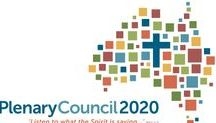
Extract from CathNews, ACBC Media Blog, 2 March 2022
The four-year journey of discernment for the Fifth Plenary Council took a step forward this week, with Council Members invited to reflect on proposals emerging from the Council’s first assembly, held in October 2020, Towards the Second Assembly: A Working Document for Members offers a focus for Members’ continuing prayer and reflection, especially during the coming month. It includes proposals drafted as part of the process of preparing resolutions for the Council’s second assembly in July. Members will spend the month of March in personal and shared reflection on the document, prepared in four sections by expert writing groups. Members will then provide their reflections to the Council’s drafting committee, which will work with other Council committees and advisors to revise, refine and consolidate the proposals, in anticipation of their publication several weeks before the second assembly. Plenary Council vice president Bishop Shane Mackinlay, addressing Members last night, said the document “is something which is a work in progress for Members”. “It's not just the work of committees or experts or writing groups,” he said. “It is the next step in the process we are undertaking together of preparing resolutions for the second assembly of the Plenary Council. “The contribution of Members over the coming month is critical to this,” Bishop Mackinlay said. Towards the Second Assembly draws primarily on the “fruits” of the first assembly’s discernment, discussion and contributions, published in December 2021. Bishop Mackinlay asked the Catholic community to continue to lift up the Plenary Council and its Members in prayer, “which has been a driving force behind our four-year journey”......(More) Find out more about the Plenary Council HERE
Extract from CathNews, 2 March 2022
With Russia placing its nuclear weapons forces on high alert, Catholic Religious Australia has reiterated its support for the Treaty on the Prohibition of Nuclear Weapons. “As the world moves closer to nuclear conflict, which will lead to humanitarian and ecological destruction on multiple levels and suffering for generations to come, we call for the non-proliferation of nuclear arms and a culture of peace between nations, peoples and the planet,” said CRA National Executive Director Anne Walker. “In response to the violence, death and devastation witnessed now in the Ukraine but also in countries around the world in the past few years, such as Afghanistan, Myanmar, and Ethiopia, we call upon our Catholic community, and all people of goodwill, to pray and support refugee and relief initiatives. “War, aggression and nuclear proliferation should never be the answer to political, territorial, religious, or any other difference. CRA prays for mutual dialogue and respect between countries and peoples, so that the sacredness of human life and the natural world is always upheld.” CRA also echoed the call of Pope Francis for the Catholics and people of faith to unite in prayer and fasting today, Ash Wednesday, for peace in the Ukraine....(More)
Extract from Opinion Piece, Michael Sean Winters, National Catholic Reporter, 2 March 2022
If you had any lingering doubts that the neoconservative Catholics of old have given way to neofascist Catholics of today, you can set those doubts aside. The reaction of some prominent Catholics to the war in Ukraine was appalling and shows the degree to which any kind of moral acuity has vanished from certain sectors of the American right. On Feb. 24 and 25, every time I turned on the news, the tears came easily. It was not just the horror of war. More than that, it was the bravery of the Ukrainian people. When President Volodymyr Zelensky spoke to the Russian people in their own language, pleading that war be averted, it was impossible not to realize that he surely knew he might soon be killed. He pleaded for peace, for decency and for democracy. Zelensky rose to the moment in a way I had thought politicians no longer did, that only in the olden times did such personal, physical courage manifest itself on the part of a politician. Laura Ingraham of Fox News was not moved by President Zelensky's passionate address to the Russian people as the invasion seemed imminent. While interviewing former President Donald Trump, she called Zelensky's speech a "pathetic display." She also said Ukraine's ambassador to the United Nations, Sergiy Kyslytsya, looked like a "defeated man" when it was Kyslystya's defiance and moral clarity that were most striking. He, like Zelensky, spoke as champions of democracy and human dignity. Perhaps Ingraham is so morally compromised by her long, sycophantic relationship with Trump that she is incapable of recognizing a democratic champion when she sees one. (Listen to the rest of the clip. Trump apparently thought Ingraham had revealed U.S. forces had launched an amphibious invasion of Ukraine, and complained that the Biden administration should not have been using her to reveal such a momentous thing. Of course, he misunderstood and Ingraham explained it was the Russians who were mounting an amphibious invasion, not the U.S.....(more)

Extract from CathNews NZ, Monday, February 28th, 2022
Plans have been made for 16 men from Vietnam to come to this country to study and prepare to be diocesan priests in New Zealand dioceses. When they arrive in New Zealand, it is planned that they will work to complete level 6.5 IELTS academic (English language), while living in their “home” dioceses in this country, so they can begin studies at Te Kupenga – Catholic Theological College, and apply to become seminarians. NZ Catholic understands that the timing of their eventual arrival in New Zealand will depend on the New Zealand Government allowing foreign students to once again enter the country for study. The sixteen will have to go through whatever MIQ or isolation requirements are in place when that happens. Former Holy Cross College rector Msgr Brendan Daly has played a key role in arranging for the Vietnamese men to come to New Zealand. Msgr Daly, who lectures in canon law at Te Kupenga Catholic Theological College’s Auckland campus, has previously liaised with Church authorities in Vietnam to bring men to this country to study for the priesthood. He told NZ Catholic that he was asked to get three seminarians for the Christchurch diocese a year ago. “Then I was asked to get three for Wellington archdiocese. “The requests just kept growing, so that there are one for Dunedin, four for Christchurch, three for Wellington, four for Palmerston North, two for Hamilton and three for Auckland diocese” he said. Msgr Daly said that, in July last year, 200 young men sat the seminary entrance exam for Vinh-Thanh seminary in Vinh diocese in northern Vietnam, and 40 were accepted.....(More) Photo: Vietnam 16 hope to be priests in NZ CathNews NZ 20220228
Extract from CathNews NZ, 28 February 28th, 2022
Catholics everywhere are four months into the public consultation phase of Pope Francis’s global Synod – but it’s been a bit of a non event in Ireland so far. Francis launched the Synod last October and many countries have already completed the consultation phase where all baptised Catholics have an opportunity to contribute to local synod-focused discussions and recommendations. In Ireland, the consultation phase is only now commencing according to a survey by lay Catholic lobby group We Are Church Ireland, which is supporting Phase 1 of the Synod. Irish participation by the numbers. There are 26 Irish dioceses. Their websites show: Six dioceses make no mention of the Synod, Four name their Synod contact person, Five have online response forms, Only seven diocesan websites get a “We Are Church Ireland” pass mark for their Global Synod efforts. Why consultation is important “I have no doubt that the Global Synod will take place as planned in October 2023. But Pope Francis’s plan that everyone should be involved will not happen,” says Colm Holmes (pictured) of We Are Church Ireland. "Seeking inputs from those at the margins and those who have walked away requires a major effort”, he says. “Much easier for each diocese to contact the few who remain in the pews after Covid. “A large majority have little or no time for a Synod which, after Phase 1, is totally controlled by the bishops in all subsequent phases”. This involves organising a “Listening Session” with the theme “What changes are important for our Church?” Why the delay in Ireland It’s possible that Ireland’s upcoming National Synod is behind the slow start to the Global Synod. He says in 2021 Ireland’s bishops announced that they would hold an assembly or assemblies of the Church in Ireland within five years. “The Global Synod has now been integrated into the first two years of our National Synodal Pathway” Holmes explains......(More)

Extract from Lana Turvey-Collins, Plenary Post, 25 February 2022
Dear Friends, In last month’s PlenaryPost, we wrote to you about the timeline of Plenary Council activity during the months leading up to the second General Assembly of the Fifth Plenary Council of Australia. In your local parish or faith community group, over January and February, you may have been engaged with the universal Synod of Bishops process. This is a wonderful opportunity to share what the Church in Australia has learned about practising synodality and participate in the global process. The timeline and activity for the Plenary Council intertwines with the timeline and activity for the global Synod. This is a timely example that all local churches belonging to something global, something greater than ourselves and something that, in Christ, sees our differences find unity. For this month’s PlenaryPost, we have developed a poster as a visual aid, affirming the various stages of progressing the Plenary Council discernment, and gradually bringing the celebration to a close. It is available now on the Plenary Council webpage and you can access it here. As per the timeline, next week the Members will receive from the Drafting Committee a working document with proposals developed from the work of the first assembly. From these proposals, propositions will eventually be developed to be voted on by the Members in July, when all gather in Sydney for the second general assembly. During the month of March, the Members will pray with, reflect on and give input to the first drafts, which will be received by the Drafting Committee to further enhance their discernment and support their next stage of writing and reviewing, which will happen during the month of April. As mentioned last month, the finalised proposition papers, along with the program and supporting liturgical resources for the second general assembly, will be published for the People of God in Australia at the time of Pentecost in early June. June will be a month for focused, direct preparation for the whole Church toward the days of the assembly in July........Source

Extract from CathNews, ACBC Media Blog, 25 February 2022
The first historical analysis of diocesan pastoral councils in Australia is seen as an important contribution to an ongoing conversation about the role of such councils in the life of the Church now and in the future, As part of its response to The Light from the Southern Cross, a national review of diocesan and parish governance and management, the Australian Catholic Bishops Conference said it would gather information on the theological foundations for diocesan pastoral councils and their history in Australia. Historian Damian Gleeson was engaged to write a report on the history of diocesan pastoral councils, which surveys the period since the Second Vatican Council in the 1960s. Dr Gleeson’s report, Diocesan Pastoral Councils: An Australian Historical Study, reveals that while a significant number of archdioceses and dioceses have had pastoral councils during that time, only five are operating currently. Dr Gleeson said much was written about diocesan councils in The Light from the Southern Cross and in the Bishops Conference’s response to that report, but both seemed to underestimate their achievements while they were operating. “Diocesan pastoral councils have generally had a solid track record of shared decision-making, respectful engagement between clergy, religious and laity by working in ‘harmony’ with the Ordinary (Bishop), and implementation of faith-focused and broad pastoral services across the Australian landscape,” he wrote. The research also suggested strong achievements from councils with a majority of elected or appointed lay members. Dr Gleeson concluded that the “attitude, energy and enthusiasm of a bishop are the largest factors influencing the existence, meaningfulness and longevity” of a diocesan pastoral council.....(more) Click here to access Dr Gleeson’s report. Image:CathNews 20220225

The president of the Catholic bishops' conference in Poland has written to his German counterpart to express deep concern over the Synodal Path underway in Germany
Limited Extract from Marie Joan, Poland,subscription journal La Croix International, 24 February 2022
Archbishop Stanislaw Gadecki, president of the Catholic Episcopal Conference of Poland (KEP), has warned Church leaders in Germany not to allow the country's Synodal Path to deviate from official Church teaching. The 72-year-old Polish archbishop outlined his concerns in a letter this week to Bishop Georg Bätzing, 60, president of the German Bishops' Conference (DBK). Catholics in Germany launched the Synodal Path in December 2019 following the publication of a report revealing the extent of Church-related sexual abuse there. The initiative has opened a major reflection on the organization and future of Catholicism in Germany. And among the proposals that were ratified earlier this month was the relaxation of priestly celibacy. Referring to the Gospel Archbishop Gadecki expressed concern over the suggestion in his letter to Bishop Bätzing, but he is not the first to openly question the soundness of the Synodal Path. The Vatican has also cautioned against the profound changes that are being demanded by some German Catholics involved in the Synodal Path. Pope Francis sent a letter to the German bishops in June 2019 encouraging them in their reflections, but he also warned them against the "temptation" to focus only on "purely structural reforms".....(Source). Photo: Archbishop Stanislaw Gadecki, president Episcopal Poland, JACEK TURCZYK EPA MAXPPP, La Croix 20220224
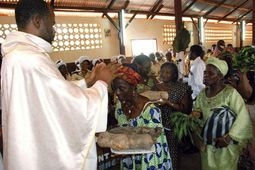
Extracts from Cindy Wooden, Catholic News Service, 18 February 2022
VATICAN CITY. The number of Catholics and of Catholic men and women who devote their lives to serving them continues to grow in Africa and Asia, Vatican statistics show, but pastoral ministry is still much more readily available to Catholics in Europe. At the end of 2020, the number of Catholics in the world reached 1.36 billion, an increase of 16 million over the previous year, according to the Vatican’s Central Office of Church Statistics, which published a brief overview of the global numbers in early February. While Catholics remained about 17.7% of the global population, their numbers grew in Africa by about 2.1% and in Asia by 1.8% while in Europe the increase was just 0.3%, said the summary, which was based on numbers reported Dec. 31, 2020. And while just over 20% of the world’s Catholics live in Europe, 40% of the world’s priests minister there. The Americas have 48% of the world’s Catholics, but only 29.3% of the world’s priests. The Vatican reported that 18.9% of the world’s Catholics live in Africa and are served by 12.3% of the world’s priests; 11% of Catholics live in Asia served by 17.3% of the world’s priests; and just under 1% of the global Catholic population lives in Oceania where 1.1% of the world’s priests live. The Catholic Church also had 5,363 bishops at the end of 2020 with 13.4% of them ministering in Africa. The total number of diocesan and religious-order priests decreased globally to 410,219, the Vatican office said. But the decrease was due to falling numbers in Europe, North America and Oceania. The number of priests increased in Africa and Asia. The statistical office noted an “obvious imbalance” in the ratio of Catholics per priest in different regions. Globally there is one priest for every 3,314 Catholics in the world. But the ratio is one priest for 1,746 Catholics in Europe, 2,086 Catholics per priest in the Americas and 5,089 Catholics per priest in Africa.....The number of seminarians decreased globally to just under 112,000 with every region except Africa showing a downturn.........(more). Photo: priest accepting offertory gifts, Yaounde, Saabi, Galbe dotCom, CNS 20220218
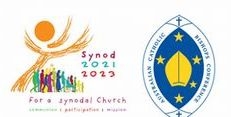
Extract from CathNews, ACBC Media Blog, 18 February 2022
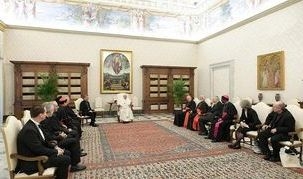
Extracts from Vatican News Media Release 20220207, Linked here 15 February 2022
About three months after the opening of the synodal process, the 15th Ordinary Council of the Synod of Bishops expressed great satisfaction with the headway being made by the process at the local level. Close to 98% of the Episcopal Conferences and Synods of Eastern Churches worldwide have appointed a person or an entire team to implement the synodal process. The Ordinary Council's assessment was bolstered by the results that emerged from exchanges during some 15 online meetings with synod appointees from around the world organized by the General Secretariat of the Synod of Bishops from November-December in 2021. The Synodal Process at the Global Level The Church is on the move! Dioceses and both the laity (organized or not) and consecrated life in particular are showing great enthusiasm, which is being translated into a myriad of initiatives promoting consultation and ecclesial discernment. This is confirmed by the numerous testimonies received by the General Secretariat from all over the world, some of which are published periodically on the website synodresources.org. In addition to being reasons for hope, they are also a sign that the Holy Spirit is at work. Those who have experienced this synodal process in action testify to an experience that brings joy and speak of a true transformation in their feeling of belonging to an ecclesial community. In general, the timing, the modalities employed in the consultation, and the participation of the People of God vary from region to region. The synodal process has been particularly welcomed with joy and enthusiasm in several African, Latin American, and Asian countries. In places where a diocesan or national synodal process was already underway or about to begin, the two synodal dynamics have been successfully harmonized. The extension of the listening phase of the People of God has been particularly appreciated...........Challenges Many of the faithful perceive the synodal process as a crucial moment in the Church’s life, as a learning process as well as an opportunity for conversion and renewal of ecclesial life. At the same time, various difficulties have also emerged. In fact, fears and reticence are reported among some groups of the faithful and among the clergy. There is also a certain mistrust among the laity who doubt that their contribution will really be taken into consideration. Conclusion.....While it seems that the novelty of the synodal process has given rise to much joy and dynamism, a number of uncertainties must also be addressed. There is growing awareness that the synodal conversion to which all the baptized are called is a lengthy process that will prolong itself well beyond 2023. The desire all over the world is this synodal journey which has begun at the local level continue this journey well beyond Synod 2021-2023 so that tangible signs of synodality might increasingly be manifest as constitutive of the Church.....(more). Photo: Pope Francis, General Secretariat Synod of Bishops, Vatican Media, 20220207
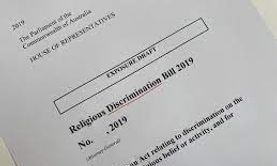
Extract from Fr Bill Edebohls, Catholic Parish Ivanhoe website, 11 February 2022
The current debate on the Religious Discrimination Bill, both inside and outside of Federal Parliament, has brought out the best and the worst of politicians, religious leaders and people of faith. The worst of it is the Australian Christian Lobby, based in Canberra, who have many politicians in their thrall and wield such power that politicians are fearful of incurring their eternal wrath. Hence the amended Religious Discrimination Bill has been pulled from the parliament by the Prime Minister, not just because it has divided his own party but because the religious right (represented by the Australian Christian Lobby) has demanded it. What is ugly about this is that the Australian Christian Lobby presumes to represent the Christians of Australia and the media and politicians are sucked in by this fallacy. They represent a small sector of right wing protestant and pentecostal fundamentalists who have little understanding of traditional Christianity as lived out by mainstream Christianity. They certainly don’t represent the Catholic Faith in which I was raised as an Anglican and now practice as a Roman Catholic. It is, of course, good that we strive to end religious discrimination but we don’t do it by discriminating against others..........(More)
Extracts from Adam Wesselinoff, Catholic Weekly, 11 February 2022
Years of drafting, hundreds of hours of consultation, an expert review and two Parliamentary inquiries may come to nothing after the Coalition Government’s Religious Discrimination Bill went down in flames this week. The bill went to a vote during an all-night sitting of the House of Representatives on Wednesday night and passed, after a flurry of last-minute amendments from Labor and the crossbench. The only successful amendment was the removal of Section 38(3) of the Sex Discrimination Act, which gave religious schools the right to discriminate on sexual orientation, gender identity, and marital status in accordance with the tenets of its faith. It was proposed in response to weeks of claims that Christian schools will use religious freedom laws to discriminate against LGBT students; proposals by the Government to address this issue were not considered comprehensive enough by advocates and progressive MPs...........Rebekha Sharkie, a Centre Alliance MP from South Australia, proposed the total removal of section 38(3). She was backed by Labor and five Coalition MPs who crossed the floor: Trent Zimmerman, Katie Allen, Fiona Martin, Dave Sharma and Bridget Archer. The Prime Minister, Scott Morrison, reportedly used every possible means to cajole the so-called “moderate liberals” into maintaining party discipline – including offering to give more powers to a proposed federal integrity commission – without success.......Bill not voted on in Senate The bill accordingly did not proceed to a Senate vote. The Senate will not sit again until the Budget is handed down on March 29, meaning the bill will either wait until then or be put on the backburner indefinitely. The Attorney-General is also considering yet another Senate Inquiry on the bill, despite two Parliamentary inquiries recommending the bill be passed with only minor amendments. Defence Minister Peter Dutton told the ABC on Friday morning that the Prime Minister was “misled” by the Coalition MPs who crossed the floor. “There are undertakings that were given. The undertaking wasn’t honoured ....… The government doesn’t go into a vote like that unless assurances have been given,” Dutton said. The Australian Catholic Bishops’ Conference representative on the issue, Melbourne Archbishop Peter Comensoli, appealed on Twitter for prayers on Wednesday. “Prayers for our parliamentarians as they debate the Religious Discrimination Bill this afternoon, especially for efforts to find common ground. Praying for a good and equitable law that is considerate of all Australians,” Archbishop Comensoli said. The National Catholic Education Commission has also supported the bill and has repeatedly stressed that Catholic schools do not expel students based on their sexuality or gender identification.......(More)
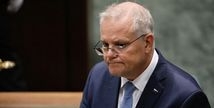
Extract from CathNews, The Australian, 11 February 2022
Scott Morrison and Anthony Albanese have set up an election clash over religious freedoms, with both pledging to legislate protections for faith groups. Source: The Australian. The Government yesterday shelved its plan in the wake of a humiliating defeat on the floor of Parliament, failing to deliver on a 2019 election promise to legalise safeguards for religious groups. Despite Mr Morrison’s desperate party room plea for unity on the religious discrimination bill earlier this week, warning a failure to unite could cost the Coalition the election, five moderate Liberal MPs joined Labor and crossbenchers in amending the Government’s planned changes to the Sex Discrimination Act, to torpedo his faith protections. Labor, after successfully amending the Government’s planned changes to the SDA to protect transgender students, yesterday vowed to campaign on religious freedom and legislate faith protections if it won the election. Anthony Albanese said a Labor government would ban discrimination against people of faith, while also protecting students and teachers at religious schools. The Labor leader’s commitment not to walk away from religious freedoms came as the Government conceded it would run out of time to legislate faith protections with only two Senate sitting days remaining before a likely May election.....(more). Photo: Scott Morrison RD package ABC News Adam Kennedy, CathNews 20220211
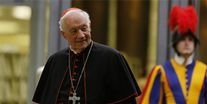
Extract from CathNews, CNA, 11 February 2022
The Vatican will hold an international symposium next week to discuss the theology of the relationship between Catholic priests and the laity. The conference, “For a Fundamental Theology of the Priesthood,” will take place February on 17-19 in the Vatican’s Paul VI Hall. The symposium was first announced in April 2021. Cardinal Marc Ouellet, prefect of the Congregation for Bishops, has organised the meeting together with the France-based Research and Anthropology Center for Vocations. “The initiative proposes to reawaken enthusiasm for our faith in the gift of God and to give new zeal to the promotion of vocations,” organisers said. According to a press release: “Bishops, clergy, laypeople and religious will meet for a moment of reflection and study on the relations between ordained ministers, and lay and religious members, with a view to harmonising their contribution, which will be articulated and in line with the call to holiness addressed to each one.” The three-day symposium will begin with an introduction from Pope Francis on faith and the priesthood today. Around 500 priests, bishops, religious, and other Catholics are expected to attend. Theologians and other Catholic experts will present on topics including the Fathers of the Church, St. Thomas Aquinas, priestly celibacy, the pastoral challenges of the priesthood, vocational formation, and the complementarity of the different states of life. A roundtable on women and ministry will take place on the second day, February 18. The symposium on vocations will be one of the first Vatican conferences to be held in-person since the start of the COVID-19 pandemic.....(more). Photo: Cardinal Marc Ouellet CNS Paul Haring, CathNews 20220211

Extract from CathNews NZ, CNA, 10 February 2022
The Vatican says the Church’s effort to listen to the 1.34 billion Catholics worldwide through a synodal process is facing challenges. The synod’s diocesan phase is expected to last until 15 August.
“Many of the faithful perceive the synodal process as a crucial moment in the Church’s life, as a learning process as well as an opportunity for conversion and renewal of ecclesial life,” a statement from the Vatican said on Monday. The statement followed a meeting of the ordinary council of the Synod of Bishops last month. The statement continued, saying “various difficulties have also emerged. In fact, fears and reticence are reported among some groups of the faithful and among the clergy. There is also a certain mistrust among the laity who doubt that their contribution will really be taken into consideration”. The pandemic is creating a further obstacle. People can’t gather in person for communal discernment. This reiterates that the local synodal process leading up to the 2023 Synod on Synodality “cannot be reduced to a mere questionnaire”. Despite these concerns, organisers say participation among Catholic bishops’ conferences worldwide has been high and efforts have been made to translate the synod documents into many local languages. According to the council, “close to 98% of the Episcopal Conferences and Synods of Eastern Churches worldwide have appointed a person or an entire team to implement the synodal process. “The synodal process has been particularly welcomed with joy and enthusiasm in several African, Latin American, and Asian countries,” it said.....(more)

Extract from John Warhurst, Eureka Street, 10 February 2022
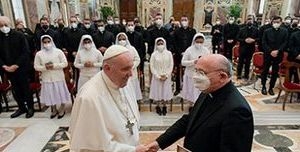
Extract from CathNews, Crux, 9 February 2022
Pope Francis has told priests not to shut themselves into small-knit cliques but instead open themselves to the world and make God’s love reach everyone. “Please, let us not remain barricaded in the sacristy and cultivate small, closed groups where we can pamper ourselves and be comfortable,” the Pope said on Sunday during an audience with priests studying at Rome’s Pontifical Lombard Seminary. “There is a world waiting for the Gospel and the Lord wants his shepherds to be conformed to him, carrying in their hearts and on their shoulders the expectations and burdens of the flock. Open, compassionate and merciful hearts,” he said. Pope Francis said he knew that some of the priests, who go to confession at Rome’s Basilica of St Mary Major, located near the seminary, tell each other afterward, “Go to that one, but not that one — he’ll make your life miserable.” Just as the student priest seek to confess with “priests who are merciful to us,” they must also strive to show mercy to those who come to them. “Just as we want mercy when we go to ask forgiveness for our sins and seek the most merciful, you must be merciful with everyone,” he said. “Don’t forget that God never tires of forgiving. We are the ones who tire of asking for forgiveness, but he never gets tired of forgiving.”....(More). Photo:Pope audience priests Rome Vatican Media, CathNews, 20220209

‘It’s appalling’: For trans student Miles, gender identity should have nothing to do with school
Limited extracts from Jewel Topsfield and Madeleine Heffernan, The Age, 9 Feb 2022
Transgender student Miles Wade struggles to comprehend how a faith-based school could be allowed to discriminate against a student because of their gender identity. He says his own school – Koo Wee Rup Secondary College, a government school in South Gippsland – was “absolutely amazing” when he transitioned to a boy in year 10. Under amendments proposed in the religious discrimination bills package to be introduced to Federal Parliament this week, faith-based schools would be banned from expelling gay students. However, they would retain the right to discriminate against students because of their gender identity, including transgender and gender-diverse children........Last year, a student at Xavier College, one of Melbourne’s oldest Catholic boys’ colleges, identified as a girl in year 12. “We affirm her in her decision,” principal William Doherty and rector Father Chris Middleton wrote in a newsletter to parents at the time. “We will continue to welcome, care for and educate our female student in all ways.” The newsletter said the school was aware that this topic could elicit a range of opinions and thought but it rejected prejudice and discrimination in all its forms. “Jesus, of course, was the great includer, often challenging the norms of his time centred on the universal tenets of love and inclusion.”.......Miles said Koo Wee Rup Secondary College immediately changed his name and pronouns when he came out as transgender in September last year and contacted the Victorian Curriculum and Assessment Authority to make sure his details were correct in exams. ”They have been absolutely amazing from the beginning. It’s been a blessing,” he said. “The vice-principal got me in for a meeting just to discuss anything that would help me. I can use whatever toilets, but she gave me a pass for the unisex, disabled toilet just to be more comforting and private.” Miles said retaining the right to expel transgender students from faith-based schools made the broader community believe it was OK to discriminate against people on the basis of faith. “One of my biggest supporters is my music teacher. He’s Christian, he has faith, but he is the most accepting person I know,” he says. “And that just shows you that when somebody has so much faith in religion, such as a man like him, you can still live happily and support anyone you like no matter what.....(Source). Photo: Transgender Miles Wade The Age 20220209
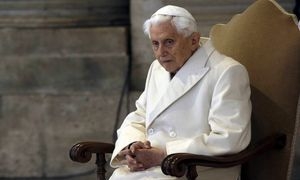
Limited extract from Gerard O'Connell, Subscription journal America, The Jesuit Magazine, 8 February 2022
Emeritus Pope Benedict XVI has written a “mea culpa” in a penitential letter, released by the Vatican today, that he calls “a confession” in response to the charges made against him in the report on abuse in the Archdiocese of Munich published on Jan. 20. In it, he takes personal responsibility and asks forgiveness for “the abuses and the errors” that occurred on his watch when he held different positions of great responsibility in the church, not just in Munich but also in Rome. “Once again, I can only express to all the victims of sexual abuse my profound shame, my deep sorrow and my heartfelt request for forgiveness. I have had great responsibilities in the Catholic Church,” he wrote in a key paragraph of the two-page letter. “All the greater is my pain for the abuses and the errors that occurred in those different places during the time of my mandate. Each individual case of sexual abuse is appalling and irreparable. The victims of sexual abuse have my deepest sympathy and I feel great sorrow for each individual case.”.....(source). Photo: Emeritus Pope Benedict XVI Gregorio Borgia, America TheJesRev 20220208

Extract from Catholics For Renewal, Pearls and Irritations, 6 February 2022
Catholic bishops are misguided in their insistence on being legally permitted to discriminate against individuals to protect the “ethos” of their schools. In his ministry among the people of Judaea, Samaria and Galilee, Jesus had a single vision and inspiration — the kingdom of God, of which he spoke incessantly. Moreover, he instructed his disciples to pray for its growing presence in the world: “Our Father… may your kingdom come and your will be done on earth…” (Matthew 6:10). Making the kingdom a reality is an evolutionary process. It involves God and people working in partnership to free the world from the powers that enslave humanity, and to transform it into a world where there is justice and peace, unity and happiness, fullness and plenty, joy, and an end to suffering (Matthew 5:2-10). Jesus’ primary mission was among the poor, the sick, the lepers, the sex workers, the tax collectors, the downtrodden and marginalised, and even the Samaritans. He spent little time among the regular attendees at the temple and local synagogues and had few good things to say about their leaders. In his eyes the Scribes and Pharisees were “hypocrites”, “blind guides”, “serpents” and “whitewashed tombs” (Matthew 23:2-36). When they saw him eating with tax collectors and sinners they were irate (Luke 15:2), for their expectation was that he should discriminate against such people. The Pharisees did not understand that the Law of Moses was meant to lead people to love God and their neighbour. Hence Jesus tells the crowds that “if your virtue goes no deeper than that of the Scribes and Pharisees, you will never get into the kingdom of heaven” (Matthew 5:20). Discrimination of any kind had no place in the kingdom preached by Jesus. His message was “love one another” and “treat others as you would like them to treat you” (Luke 6:31). Vatican II, in its Pastoral Constitution of The Church in the Modern World, was blunter: “Discrimination is contrary to God’s will. Every type of discrimination, whether social or cultural, whether based on sex, race, colour, social condition, language, or religious must be overcome and eradicated” (Gaudium et Spes, 29). Discrimination legislation To discriminate against any person for any reason is to offend against their fundamental human rights. There is no “Good News” in discrimination. It is alien to the kingdom of God. Archbishop Desmond Tutu, once asked whether he was working for the kingdom of God, replied: “It is easier to be a Christian in South Africa because the moral issues are so clear.” In Australia today, however, the moral issues appear not so clear. Indeed, they seem confused, especially in the Religious Discrimination Bill 2021now before federal Parliament....(more). Photo: pride-church-Unsplash, Pearls Irritations 20220406

The Roman Church's ongoing implosion is accelerated as cardinals call for major doctrinal changes and a former pope tries to save a legacy tied to the ecclesiastical "ancien regime"
Limited extract from Robert Mickens, Letter from Rome, Subscription Journal La Croix International, 5 February 2022
There was more turbulence in Roman Catholicism this past week -- at least on the Old Continent. A number of recent events verified -- to those who are willing to open their eyes and face reality -- that the Roman Church's ongoing implosion is picking up pace. Here are just a few things that happened when many people were probably not paying attention: - Two cardinals close to Pope Francis publicly called for radical changes in certain Church teachings and practices - A bishop in Northern Italy admitted he made a mistake when he took in an American priest that the Vatican had cleared of sexual abuse charges on a legal technicality - Spain's government announced it was launching a major investigation into Church-related sexual abuse because the country's Catholic bishops have refused to do so - And two symbols of the Roman Church's anachronistic ancien regime paradigm -- the Order of Malta and Benedict XVI -- were battling to save their respective legacies. Where does one start? Calls to abolish mandatory priestly celibacy...........(Source). Photo: new-signs-that-the-old-order-is-definitely-passing-away La Croix International 20220205
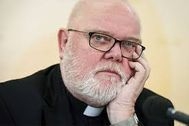
A prominent German archbishop advocated loosening celibacy rules for Catholic priests in comments published Thursday before a meeting of a German reform assembly.
Limited extracts from Subscription Journal America, The Jesuit Review, 3 February 2022
Cardinal Reinhard Marx, the archbishop of Munich, told the daily Sueddeutsche Zeitung that “it would be better for everyone to create the possibility of celibate and married priests.” His comments come as his diocese has been shaken by an independent report on the church’s handling of sexual abuse cases over decades, which faulted Marx and predecessors including retired Pope Benedict XVI. Marx, a prominent reformist ally of Pope Francis, said last week that the church needs deep reform to overcome the “disaster” of sexual abuse. The cardinal insisted that celibacy won’t be scrapped altogether, but said he sees a “question mark” over “whether it should be taken as a basic precondition for every priest.”.......In 2019, Marx expressed support for a call by bishops in the Amazon region for the ordination of married men as priests to address a clergy shortage there, but stopped short of calling for a global recognition of married priests. On Thursday, the latest session of a German reform process that was launched in response to the abuse crisis is due to open. The “Synodal Path,” which brings together Catholic church and lay representatives, has sparked fierce resistance inside the church, primarily from conservatives opposed to opening any debate on issues such as priestly celibacy, women’s role in the church and homosexuality..... Source. Photo: Cardinal Reinhard Marx catholicregister.com

Extract from Opinion Piece, Concerned Parents of Citipointe Christian College, The Age, 2 February 2022
As parents with children at Citipointe Christian College in Brisbane, we reject the school’s amended enrolment contract that demands all students identify with their birth gender, and that all parents accept its condemnation of homosexuality as a sin. Our Christian faith makes it impossible for us to sign this contract. As a result, our children will be excluded from the school – not because of anything they’ve done, but because of the beliefs and values of their parents. The school is not only discriminating against students on the basis of sexuality and gender identity. It is discriminating against parents on the basis of religion. Without consulting either parents or teachers, the school has unilaterally redefined the Christian faith in a way that makes it impossible for many Christians to remain associated with the school. It is easy to say we never should have put our children in the school to begin with. But when we enrolled our children, we believed it was an inclusive and welcoming community where every student would be valued and respected. That is how the school presented itself, and that is what the original enrolment contract promised........source. Photo: Citipointe Christian College, The Age, 20220202
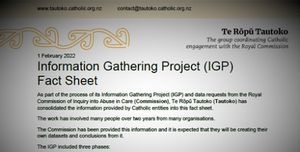
Extract from CathNews, NZ Catholic, 2 February 2022
The scale of reported alleged abuse within the Church in New Zealand has become known for the first time from extensive research undertaken by the Church at the request of the Royal Commission on Abuse in Care. A total of 1680 reports of abuse were made by 1122 individuals against Catholic clergy, brothers, nuns, sisters and lay people from 1950 to the present, with 592 alleged abusers named. Almost half the reported abuse involved sexual harm. The 1960s and 1970s were the decades with the most abuse reported, with 75 per cent dated before 1990. The results of this research have been requested by and provided to the royal commission. The definition of abuse used is the one used by the commission and includes reports of sexual, physical, emotional, psychological and neglect. The research was undertaken by Te Rōpū Tautoko, the group that coordinates Church engagement with the royal commission. Te Rōpū Tautoko sought and examined records in an Information Gathering Project from the country’s six Catholic dioceses and from 43 religious institutes, orders and associations. Sr Margaret Anne Mills, president of the Congregational Leaders Conference of Aotearoa New Zealand said: “Each piece of data represents many people’s lives. Much of it represents terrible harm committed by one person on another. We can never forget that. Being involved in being part of healing that harm, as much as is possible, is, and needs to continue to be, our focus. “All Church leaders need to urgently understand and acknowledge our shared history; understand and acknowledge the shocking impact of abuse in Church settings on victims and their families; understand what it means for survivors and our faith communities; and act today.” ....(More). Image: Abuse, NZ Catholic CathNews 20220202
Extracts from CathNews, CNS, 2 February 2022
Pope Francis encouraged religious sisters and consecrated women to continue to show courage amid difficulties, even if it means pushing back against the Church they serve faithfully. “I invite them to fight when, in some cases, they are treated unfairly, even within the Church; when they serve so much that they are reduced to servitude, at times, by men of the Church,” the Pope said. In a video message released by the Pope’s Worldwide Prayer Network yesterday, the Pope offered his prayer intention for the month of February, which he dedicated to religious and consecrated women. At the start of each month, the network posts a short video of the Pope offering his specific prayer intention........The Pope said that without the presence of religious and consecrated women, the Church “cannot be understood,” and he called on them “to discern and choose what is best for their mission in the face of the world’s challenges that we’re experiencing.”.....MORE
Brisbane college expects students to denounce homosexuality
Limited extracts from Cloe Read,, The Age, 31 January 2022
A Brisbane college missive insisting students denounce homosexuality and asking them to agree to specific gender roles has earned a rebuke from the state Human Rights Commission, saying it would likely amount to unlawful discrimination. The school said the requests were based on the religious beliefs of its church, the International Network of Churches. The contract states the college would enrol students only on the basis of the gender that corresponds with their biological sex, and that families who did not agree to “these fundamental doctrinal precepts” could be excluded from the school. “We believe that any form of sexual immorality (including but not limited to: adultery, fornication, homosexual acts, bisexual acts, bestiality, incest, paedophilia and pornography) is sinful and offensive to God and is destructive to human relationships and society,” the contract states. “We hold fast the biblical and church’s historical belief that a family begins with the covenantal institution and holy estate of marriage as ordained by God between a biological man (husband) and a biological woman (wife) mutually and exclusively entered into for life.........A petition calling for the college, which charges about $12,600 tuition for senior students, to recall its amended contract amassed more than 52,000 signatures, with former students calling it “sickening” and “disgusting”......Source

Religious leaders call for release of asylum-seekers
Extract from CathNews, 31 January 2022
A group of Australian religious leaders has launched a campaign urging Prime Minister Scott Morrison and Opposition Leader Anthony Albanese to work together to release asylum-seekers in detention. Source: Eternity News. The #SetThemFree campaign picks up on the international attention drawn to the plight of Australia’s detained asylum-seekers by the saga of Serbian tennis star Novak Djokovic, who was detained in Melbourne’s Park Hotel after his visa to enter Australia was cancelled. Mehdi Ali, an Iranian immigrant who came to Australia at age 16, used the media interest in the tennis star’s experience to highlight his own plight of being locked up for nine years with no prospect of release. Baptist minister Tim Costello spoke at Melbourne’s St Paul’s Anglican Cathedral on behalf of more than 30 faith leaders. “Compassion is the core of every faith,” Mr Costello said. “It is significant that religious leaders are urging the Prime Minister, a man of faith, to meet with the Opposition Leader and together do something that is ultimately good for all Australians – agree on releasing refugees and asylum-seekers held in indefinite detention,” he said. “There is currently no legislated end to indefinite detention. The refugees have been sacrificial lambs to the politics of border control and immigration for many years. This could be a watershed moment in which Australians can feel good about embracing a kinder approach. Sister Brigid Arthur, coordinator of the Brigidine Asylum Seekers Project, said: “The Prime Minister and Opposition Leader have the power to set them free. It is a question of whether they will open their hearts and act, not a question of what to do.”....(more). Photo: Asylum-seeker Mehdi Ali, Twitter, CathNews 20220131
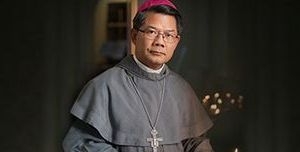
Extract from CathNews, ACBC Media Blog, 28 January 2022
Bishop Vincent Long OFM Conv, chair of the Bishops Commission for Social Justice, Mission and Service, says at least 20,000 more humanitarian places are needed for people fleeing Afghanistan. Catholic bishops were among those to advocate for a generous response from the Australian Government, supported by faith-based and community groups, to welcome Afghans looking to escape after the Taliban seized power last year. The federal Government this week announced at least 15,000 places over four years for people fleeing the crisis in Afghanistan. Bishop Long conceded such a commitment “sounds good, but the problem is that these are places within the existing humanitarian and family visa programs”. “The scale of the humanitarian crisis in Afghanistan requires the urgent creation of additional places in Australia’s humanitarian intake,” he said. “We need to scale up our practical compassion, not simply adjust priorities within existing plans. “That is why the bishops, together with other members of the Catholic Alliance for People Seeking Asylum (CAPSA) and many other community groups, call once more for the allocation of at least 20,000 additional places.”....(more). Photo: Bishop Vincent long CathNews 20220128

One of the questions that we're seeing a lot these days relates to how the Plenary Council and the international "Synod on Synodality" align, or how they might differ. In reading some of the foundational documents for the Synod on Synodality, the Australian Plenary Council experience is cited often as something of a model for how the Synod invites the People of God into a shared journey of dialogue, of discernment and of prayer. Archbishop Mark Coleridge recently spoke about the two processes in this way: "So for us the process of the Plenary Council will interweave with the process of the global Synod, an interweaving of the local and the universal, each enriching the other. That’s how the Catholic Church works." Archbishop Timothy Costelloe SDB, the president of the Plenary Council, said this when the fruits of the first Council assembly were published late last year: "The complementary nature of the Plenary Council and this Synod of Bishops process is quite clear, and I encourage people to be as engaged with the Synod as they have been in the Plenary Council." Read on for more information and updates, and news of related Church events. And please continue to pray for the Plenary Council........More - Plenary Post Edition 42
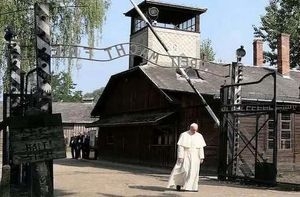
Limited extract from International staff La Croix International, Vatican City, 26 January 2022
"I appeal to everyone, especially educators and families, to foster in the new generations an awareness of the horror of this black page of history. It must not be forgotten, so that we can build a future where human dignity is no longer trampled underfoot," Pope Francis said at the end of the Wednesday General Audience, one day before the world marks the UN-sponsored International Holocaust Remembrance Day on January 27. "It is necessary to remember the extermination of millions of Jews, and people of different nationalities and religious faiths. This unspeakable cruelty must never be repeated," the pope said. The Nazis as well as their allies killed some 6 million Jews and others in German-occupied Europe following their rise to power in the 1930s on a wave of extreme nationalism. Francis lamented the genocide of Europe's Jews -- two-thirds of the continent's Jewish population -- at the hands of the Nazi regime. "This is a suffering people. They have suffered hunger and great cruelty, and they deserve peace" he said. In 2005, the United Nations designated January 27 as an International Day of Commemoration in Memory of the Victims of the Holocaust, the date of the liberation of the Auschwitz-Birkenau death camp in 1945 by Soviet troops.....(more). Photo: Pope Francis Auschwitz EPA PAWEL SUPERNAK POLAND OUT MaxPPP La Croix Int 20220127
Gabriel Moran and his radical suggestions for reform
Limited extract from John Alonso Dick, Belgium Subscription Journal La Croix International, 26 January 2022
What Happened to the Roman Catholic Church? What Now? provides a clear and balanced criticism of the Roman Catholic Church and offers what some consider radical suggestions for dealing with its problems. I would say they are realistic and very necessary. Moran reflects on the tradition of the Church in a positive and creative way. The first three chapters trace the history of the Roman Catholic Church from 1945 to the crucial period of the 1960s. The remaining nine chapters examine various issues that surfaced after the partial reforms of the Second Vatican Council (1962-65). "The Roman Catholic Church has been slowly breaking up for the past seventy years. It is now less Roman and its claim to catholicity is questionable," Moran writes early on in the book. "It is in its worst crisis since the sixteenth century, but a changed institution will surely emerge from the crisis," he says. He pinpoints the beginning of the crisis to November 1, 1950 when Pope Pius XII (1876 – 1958) proclaimed as infallible and "a dogma revealed by God" that Mary, the mother of Jesus, "when the course of her earthly life was finished, was taken up body and soul into the glory of heaven." Millions of Catholics rejoiced in the proclamation of the Assumption. Nevertheless, the world of scholarship was stunned by the papal proclamation. Protestant scholars complained that Catholic scholars had not been honest in assuring them that Catholic teaching was rooted in the Bible. "Here" Moran writes, "was a blatant disregard of scholarship. The story of the Assumption has no basis in the New Testament or in church tradition before the fourth century." From followers of Jesus's to the development of a clerical hierarchy Fortunately, most Catholic scholars today have a much better understanding of the Bible and of Church history than did Pius XII. (Some bishops I fear still resonate more with the late pope.) Jesus of Nazareth did not leave a blueprint for an institution that aims to continue his mission. The earliest form of Church was a community of believers, praying, ministering, and gathering for the breaking of bread in memory of Jesus. Obviously, as time moved on, it needed to develop an institutional structure. Some features of that structure may have been inevitable, but others were not.....(more).
Extract from Patsy McGarry, The Irish Times. 25 January 2022
Last week a report by German investigators found it “overwhelmingly likely” that Emeritus Pope Benedict XVI was aware of at least four child abusing priests among his clergy while he was archbishop of Munich from 1977 to 1982. On top of this, his former deputy in the archdiocese, vicar general Gerhard Gruber, told investigators that, when the case of one abusing priest became public in 2010, he (Gruber) was “pressured” to take sole responsibility for the failure to act, in order “to protect the pope”. Benedict – cardinal Joseph Ratzinger – was pope from 2005 until he resigned in 2013. The investigators, lawyers commissioned by the Catholic archdiocese of Munich and Freising to examine its files from 1945 to 2019, dismissed the former pope’s claims not to be aware of the four cases as “not credible”. The Church in Munich and Freising ignored victims of clerical sexual abuse and saw those it did notice “as a danger for the institution”, their report found. This is the pope who in 2010 (the same year his former deputy covered up for him) excoriated Ireland’s Catholic bishops for their handling of clerical child sexual abuse allegations. It followed publication of the Ryan report in May 2009 – which exposed the abuse of children in Irish orphanages, reformatories and industrial schools – and the Murphy report in November 2009, which exposed the mishandling of clerical child sexual abuse allegations in Dublin’s Archdiocese. ‘Sense of betrayal’ In his 2010 pastoral letter to the Catholics of Ireland Benedict said: “I can only share in the dismay and the sense of betrayal that so many of you have experienced on learning of these sinful and criminal acts and the way Church authorities in Ireland dealt with them.” What had happened was due to “a misplaced concern for the reputation of the church and the avoidance of scandal, resulting in failure to apply existing canonical penalties and to safeguard the dignity of every person”.....(more)

Francis says the quality of listening "is decisive in the grammar of communication and is a condition for genuine dialogue"
Limited extract from International Staff, Subscription Journal La Croix International, 25 January 2022
Listening is an indispensable first step in human communication, a dimension of love and a condition of genuine dialogue, Pope Francis said in his message for World Communications Day. "I would now like to draw attention to... "listen", which is decisive in the grammar of communication and a condition for genuine dialogue," the pope wrote. "Communication does not take place if listening has not taken place, and there is no good journalism without the ability to listen. In order to provide solid, balanced, and complete information, it is necessary to listen for a long time," he said. "Listening with the ear of the heart" is the theme of this year's World Communications Day, which is traditionally observed the Sunday before Pentecost, and this year falls on May 29. The message was released January 24, the feast of St. Francis de Sales, patron saint of journalists. In this year's message, the pope invites us to reflect that listening involves more than simply the sense of hearing, something that "is essentially linked to the dialogical relationship between God and humanity". "Good communication, instead, does not try to impress the public with a sound bite, with the aim of ridiculing the other person, but pays attention to the reasons of the other person and tries to grasp the complexity of reality," he said.....(more). Photo: listening with dialogue-communications-day-message 20200125_La Croix Int/ 25 Jan 2022
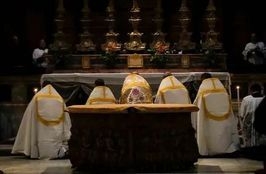
The fury of Traditionalist Catholics is tied not only to the pope's clampdown on the Old Latin Mass, but to their particular political vision that Francis does not share
Limited extract from By Jean-Louis Schlegel, France, Subscription Journal La Croix International, 25 January 2022
If social networks had existed at the time of Paul VI and John Paul II – and even more widespread than when Benedict XVI was pope – there certainly would have been critical or unfriendly comments about their pontificates. But it seems to me that they would never have had the magnitude and degree of fury that is openly expressed today against Pope Francis, after his questioning of the permissions granted by his predecessor for the celebration of the Old Latin Mass. Why so much hatred? To understand the anti-Francis acrimony, it is worth going back somewhat to the criticism of earlier popes. Following the Second Vatican Council (1962-65), "conciliar" Catholics also questioned the popes and the lack of institutional reforms that they felt the council called for. In the field of sexual and conjugal morality and bioethics, they have been strongly upset by the absolute block coming from the successive popes (Paul VI, John Paul II, Benedict XVI). Vital reforms Many of them saw the Catholic faith being reduced to a set of rigorous moral guidelines. And in these past decades if they have not left the Church, a number of them have ceased all ecclesial practice and commitment. This is also due to a basic principle among them. Putting aside some anecdotal transgressions (such as Eucharist celebrated without a priest or ordinations here and there of women), it is not a question of creating another Church, a parallel Church with its own or extraordinary rites, nor a fortiori schismatic Church. It is about the greater Church undertaking reforms vital to its future. On the contrary, one has the impression that by issuing the motu proprio Traditionis custodes last July, Pope Francis has rekindled the secessionist temptations among traditionalist Catholics......(more). Photo: Latin vespers Pantheon Basilica LUCA BRUNO AP La Croix Int 25 Jan 2022
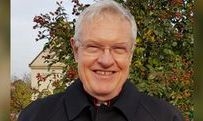
Extract from ACBC Media blog, CathNews, 18 January 2022
Pope Francis has announced that American Archbishop Charles Balvo, a veteran of the Vatican’s diplomatic service for more than 30 years, will serve as the next Apostolic Nuncio to Australia. Archbishop Balvo, the Vatican’s ambassador to the Czech Republic, was born in New York City and was ordained a priest of the Archdiocese of New York in 1976. After serving in apostolic nunciatures in South America, Africa, Europe and the Middle East, Archbishop Balvo was appointed Apostolic Nuncio to New Zealand and several Pacific Island nations in 2005. He was also Apostolic Delegate to the Pacific Ocean. In 2013, he was named Apostolic Nuncio to Kenya and took on responsibility for South Sudan after the country was established. While posted in Kenya, Archbishop Balvo also served as Permanent Observer to the United Nations Environment Program and Human Settlements Program. He has been in the Czech Republic since 2018. Australian Catholic Bishops Conference president Archbishop Mark Coleridge welcomed Archbishop Balvo’s appointment on behalf of the Australian bishops. “Archbishop Balvo is no stranger to the Antipodes, having served as Nuncio in New Zealand and the Pacific – and I myself came to know him at that time,” Archbishop Coleridge said. “But he returns to this part of the world enriched by his service as Nuncio in Africa and Europe.” Archbishop Coleridge said Archbishop Balvo “comes to us at a complex and challenging time in the Church and in Australia”. “But his combination of gifts and experience will equip him well for all that lies ahead,” he said. Archbishop Balvo succeeds Archbishop Adolfo Yllana, who last year completed six-and-a-half years in Australia when Pope Francis appointed him Apostolic Nuncio to Israel and Cyprus, and Apostolic Delegate to Jerusalem and Palestine......(more) Photo: Archbishop Charles Balvo, Wikimedia Commons, Dan1, CathNews 20220118
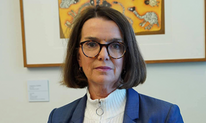
Extract from SBS News, CathNews, 20210118
The Morrison Government has responded to calls from thousands of Australians who have demanded more time to review the Draft National Plan to End Violence Against Women and Children 2022-2032. Source: SBS News. In a statement to SBS News, a spokesperson for the Minister for Social Services, Anne Ruston, confirmed Australians will now receive four weeks to provide feedback on the draft plan. “Minister Ruston contacted state and territory ministers who make up the Women’s Safety Taskforce over the weekend and they have jointly agreed to extend the timeline for public comment by four weeks, particularly in light of the COVID-related workforce pressure the sector is under,” the spokesperson said. On Friday, the Government released the draft plan that aims to set the foundation for a decade-long commitment to eliminate domestic and gender-based violence in the country. But only two weeks had been provided for Australians to provide feedback on the 75-page report, with the consultation period initially ending on January 31. The tight deadline had caused anger from activists, domestic violence groups and victim-survivors. Almost 8000 people signed an open letter calling on the government to extend the deadline to at least six weeks to ensure affected women have sufficient time to read and provide their insights into the plan.....(more). Photo:Anne Ruston, Facebook, CathNews 20210118

Extracts from Kevin McGovern, Publised in the Summer edition of The Swag and in ABC Religion & Ethics October 2021, linked here 17 January 2022
In Fourteen: My Year of Darkness, and the Light that Followed, Shannon Molloy reveals the homophobic physical and psychological abuse that was inflicted on him in Year 8 at an all-boys Catholic high school in rural Queensland. Perhaps the most disturbing episode involved a note written by someone else which purported to be a love letter from Shannon to another boy. The lengthy note described in graphic detail all manner of sexual things which it claimed Shannon wanted to do to the other boy. Incredibly, the note was read in its entirety to the whole class including Shannon by one of their teachers. Shannon attempted suicide that afternoon............Linda and Felicity are a same-sex couple. They are both from Catholic families — indeed, both of them are committed Catholics. They attend Mass each Sunday with their daughter Olivia. But because they are a same-sex couple, Linda and Felicity were afraid that the priest would refuse to baptise Olivia. They were so concerned that they searched online and contacted a group of LGBTIQA+ Catholics, who directed them to a priest who performed Olivia’s baptism. Should Catholic parents feel so much fear about having their child baptised?.........Have LGBTIQA+ Catholics been excluded from consideration? Fear. Fear of being judged. Fear of rejection. Feelings of great vulnerability, of hanging onto their faith by a thread. These are very familiar emotions for LGBTIQA+ Catholics. But will the Plenary Council respond to their situation with understanding and mercy? I am sorry to report that, based on the Working Document for the Council, there is little to suggest that it will. This is particularly surprising because in the Listening and Dialogue Sessions which began the journey to the Plenary Council, “ending discrimination against LGBTI” was a prominent issue. As Listen to what the Spirit is saying: Final Report for the Plenary Council Phase I: Listening and Dialogue noted.......(more) Photo: LGBTIQA+ people marginalised Wheatfield iStock Getty Images, ABC Religion and Ethics 20211007
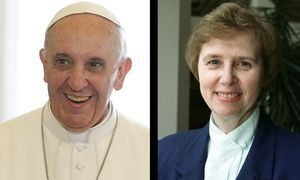
Limited extract from Jim McDermott, Subscription Journal. America, The Jesuit Review, 7 January 2022
In another sign of support for L.G.B.T. Catholics and those who advocate on their behalf, Pope Francis sent a handwritten letter on Dec. 10 to Jeannine Gramick, S.L., the co-founder of the Catholic apostolate New Ways Ministry. Sister Gramick is celebrating 50 years of working with and advocating for L.G.B.T. people. Noting her anniversary as the reason for his letter, the pope congratulated her in Spanish on “50 years of closeness, of compassion and of tenderness” in a ministry that he described as being in “‘the style’ of God.” Pope Francis’ letter to Sister Gramick is the latest in a series of letters from the pope written to gay Catholics and others who are serving and advocating for L.G.B.T. people. In his letter, the pope praised Sister Gramick for her willingness to suffer for love’s sake. “You have not been afraid of ‘closeness,’” he wrote, “and in getting close you did it ‘feeling the pain’ and without condemning anyone, but with the ‘tenderness’ of a sister and a mother.” “Thank you, Sister Jeannine,” the letter concluded, “for all your closeness, compassion and tenderness.” Almost from the start of their work in New Ways Ministry, Sister Gramick and New Ways Ministry co-founder Robert Nugent, S.P.S., were met with resistance by church authorities for the programs they offered throughout the country, which educated Catholics about the science, sociology and theology of homosexuality. Some bishops in the United States pressured Sister Gramick’s superiors to remove her from the ministry. When they declined to do so, the Congregation for the Doctrine of the Faith launched an 11-year investigation that ended in a notification, which stated that Sister Gramick and Father Nugent’s presentations on homosexuality did not accurately represent “the intrinsic evil of homosexual acts and the objective disorder of the homosexual inclination,” and banned the two from any pastoral work related to L.G.B.T. people. A year later, Sister Gramick described her experience with the Vatican as akin to that of a battered woman. In response to Vatican demands that she stop talking about the investigation, she replied, “After finding my voice to tell my story, I choose not to collaborate in my own oppression by restricting a basic human right.” Sister Gramick ended up leaving her original religious community, the School Sisters of Notre Dame, and joining the Sisters of Loreto in order to continue her ministry. Just last month, after the Vatican’s General Secretariat for the Synod of Bishops removed a link to a webinar hosted by New Ways Ministry from its website, New Ways revealed that Pope Francis had written them two letters earlier this year praising their ministry. The link was later restored. In those letters, Francis, writing about Sister Gramick, acknowledged that he knew “how much she has suffered,” describing her as “a valiant woman who makes her decisions in prayer.”....(source). Photo: Pope Francis CNS photo, Sister Jeannine Gramick, CNS photo by Nancy Wiechec, America, The Jesuit Review, 20220207
Limited extract from Americamagazine, The Jesuit Review, Catholic News Service 6 January 2022
VATICAN CITY (CNS) -- A group of pilgrims presented Pope Francis with a “reform manifesto” critical of the German Synodal Path, reported the German Catholic news agency KNA. On the sidelines of the pope’s Jan. 5 general audience, representatives of the “Neuer Anfang” (”New Beginning”) initiative handed him a pamphlet containing their own statements on themes that are also dealt with in the Synodal Path consultations, launched by the German bishops’ conference and the Central Committee of German Catholics. A member of the group said they had handed the manifesto directly to the pope because its views had no chance of being accepted by Synodal Path members in Germany. In their manifesto, they thanked the pope for initiating a world Synod of Bishops on synodality and said the “Synodal Path in Germany is getting out of hand.” “The joy of the Gospel” appeared to be getting lost in the “bickering of politicized groups,” the text said. The manifesto and a “Letter from the Pilgrim People of God to the Pope” stem from an initiative launched by Bernhard Meuser, a German publicist, and Martin Brüske, a theologian who teaches in Switzerland. The “Faith Manifesto,” signed by around 6,000 people from Germany and other European countries, contains nine theses. They include the legitimacy of the Synodal Path, the unity of the church, power, women, marriage, laypeople and priests as well as abuse. The manifesto sharply criticizes the demands of the Synodal Path, which amount to a “self-secularization of the church,” as Meuser told KNA. The manifesto contains a set of proposals: Any reform must take place in unity with the universal church; there must be no separate national paths; power in the church must serve and be legitimate and transparent. “There is indeed also abuse of power in the church,” it says. However, it adds that it does not want “a church of officials and functionaries.” The sacramentality of the church must be preserved, as must the difference between clergy and laypeople, the manifesto says. Women’s abilities must be more strongly recognized; however, their non-admission to the priesthood is not discrimination, it adds. It also supports the special status of traditional marriage as a sacrament and opposes the blessing of same-sex couples......(Source)
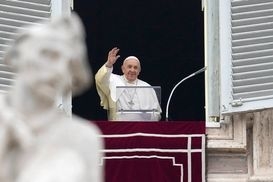
Extract from L. Allen Jr. Editor, Crux, 4 January 2022
..........The Synod on Synodality becomes a lightning rod: To reset, the Synod of Bishops on Synodality convened by Pope Francis is currently in the phase of diocesan consultations, originally set to end in April but the deadline has been pushed back to August. In September a continental phase will begin, intended to sort through the results at the diocesan level, with the physical assembly set for Rome in October 2023. So far there’s been relatively little hubbub about the synod, for the basic reason that relatively little has happened yet. However, as with most things in the Francis papacy, today’s calm is likely deceiving. In the spring and summer of 2022, dioceses in various parts of the world will report the results of their consultations with priests, religious and laity, and most of that material will become public knowledge. As it rolls in, some Catholics are going to have issues with the content – perhaps especially because the diocesan bishops most gung-ho about the synod are Pope Francis loyalists, so the first phase may elicit largely “progressive” input. As that picture begins to take shape, conservative Catholics likely will begin issuing warnings about where the synod may be headed and start organizing for the next phase. One soundbite worth preparing for: “My God, this is Germany on a global scale!” Prediction: Especially in the second half of the year, the Synod on Synods will become a leading Catholic debating point......(More) Photo: Pope Francis delivers blessing Sunday, Jan 2, 2022, Andrew Medichini AP Crux, 20220104
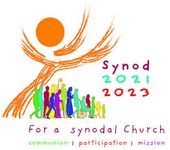
Extract from Sarah Mac Donald, National Catholic Reporter Catholic News Service, 3 January 2022
Dublin — After a year at the head of the Archdiocese of Dublin, Archbishop Dermot Farrell said, "Radical change is coming in the church," which will see a renewal of energy and new forms of ministry. "With a powerful commitment from clergy and lay faithful, across the full range of the life and ministry of parish communities, we are going to experience a renewal of energy and the adoption of new forms of outreach and ministry," the 67-year-old archbishop told Catholic News Service. He also said he believes change is already happening in the church's structures all over the Western world. "Pope Francis is offering us a way of being church, the synodal pathway, of walking together more closely and being a church that is hope-filled, despite many challenges." The leader of the largest Irish diocese, with more than 1 million Catholics and 207 parishes, invited the faithful to "walk this journey together with me — and walk it with hope: a hope that frees us to undertake radical change, a hope that inspires us to be ambitious and a hope encourages us to be brave." In November, the archdiocese published its "Building Hope Task Force Report," a strategic plan for pastoral renewal amid major challenges such as a collapse in revenue and priest numbers. "As a diocese, we need to take stock of how well we are prepared to serve the mission of the church," the archbishop said. "Of course, we confront immense challenges. Certain forms of church life may be dying out. Once we accept this, it does not mean resignation or powerlessness, but new responsibilities for the mission." He stressed that there is "no pre-packaged plan to address the reality in which we find ourselves.".....(More)